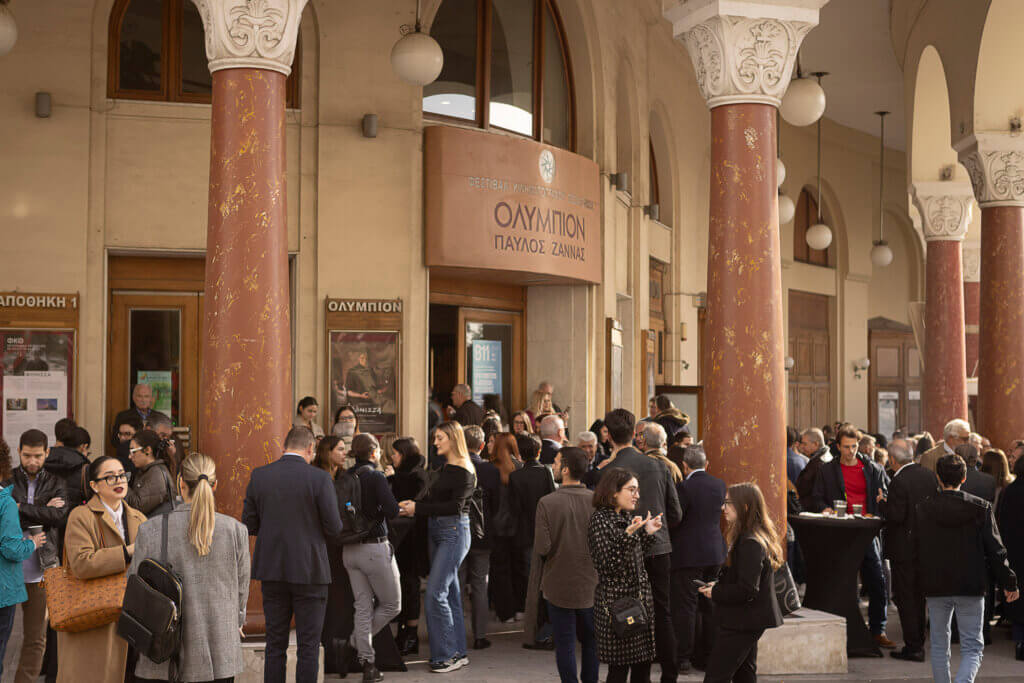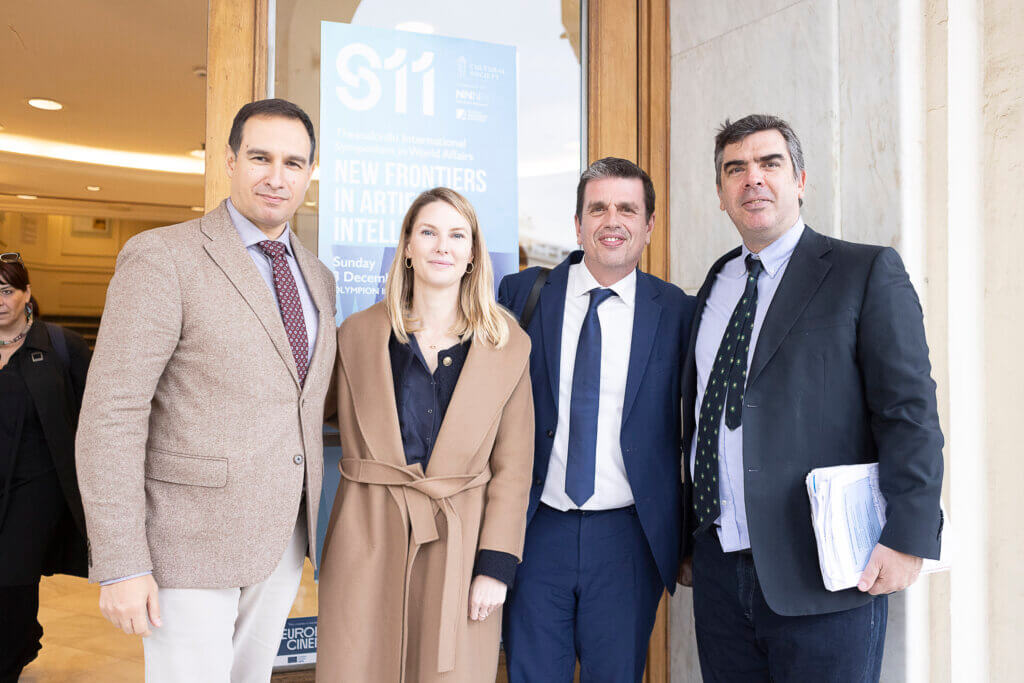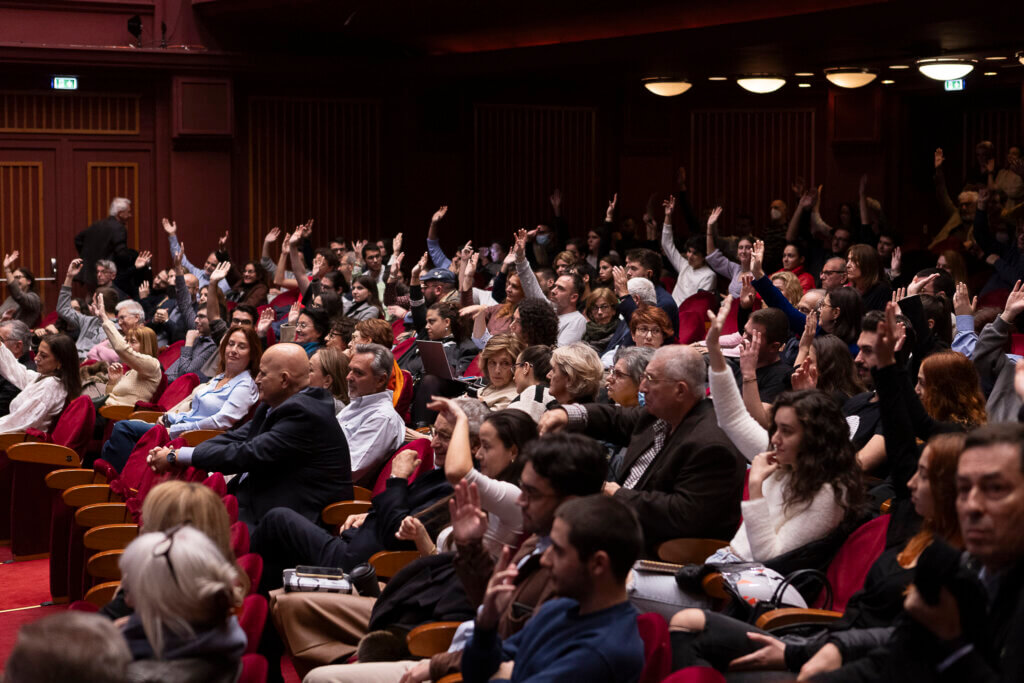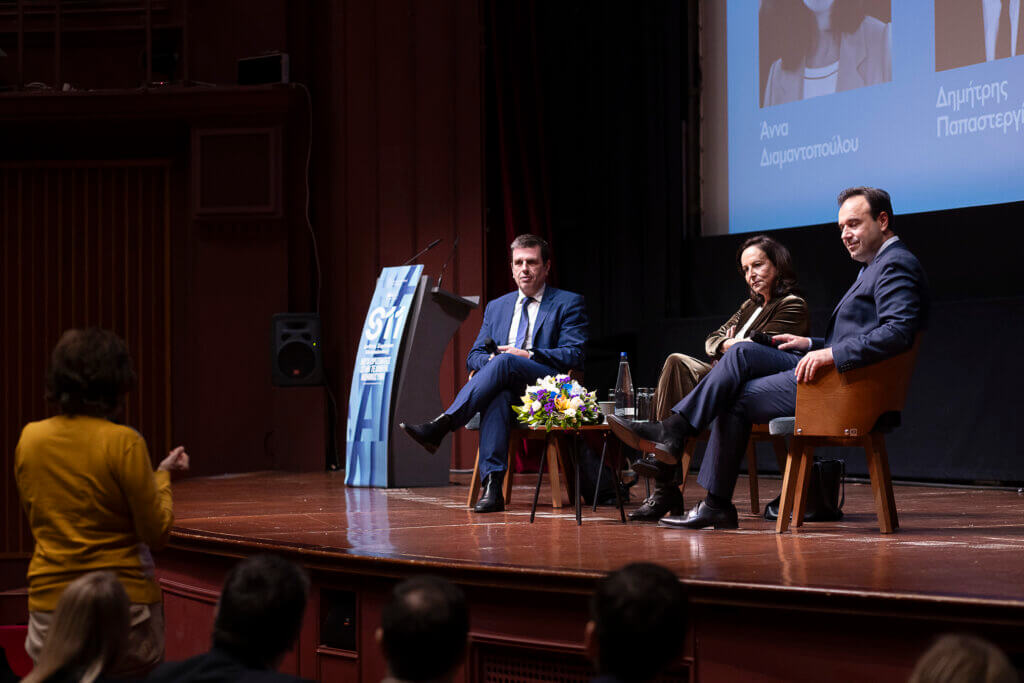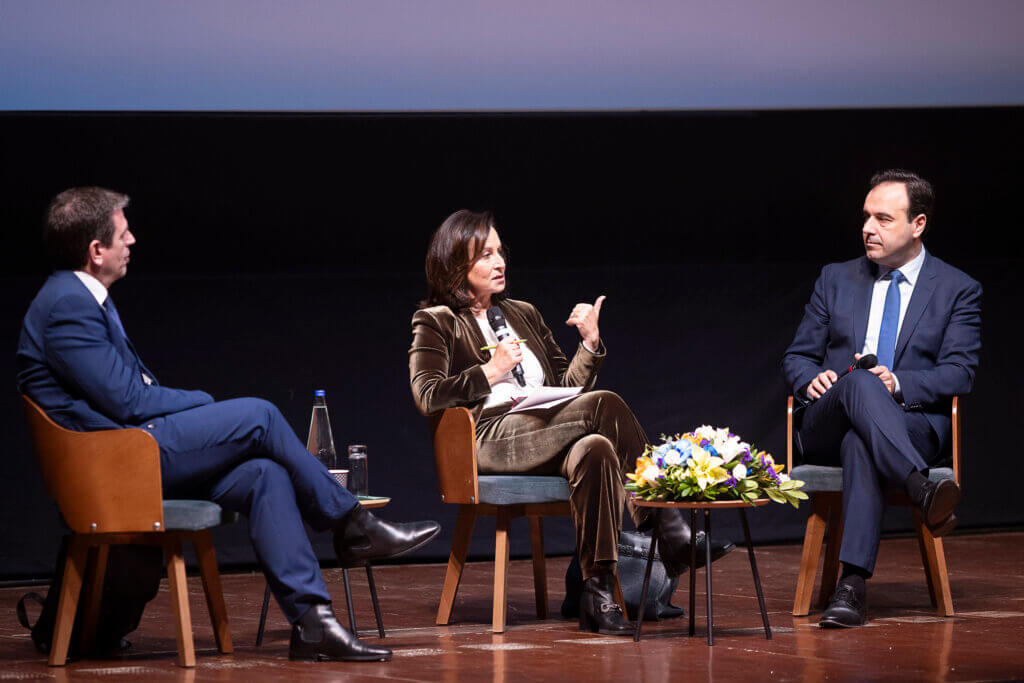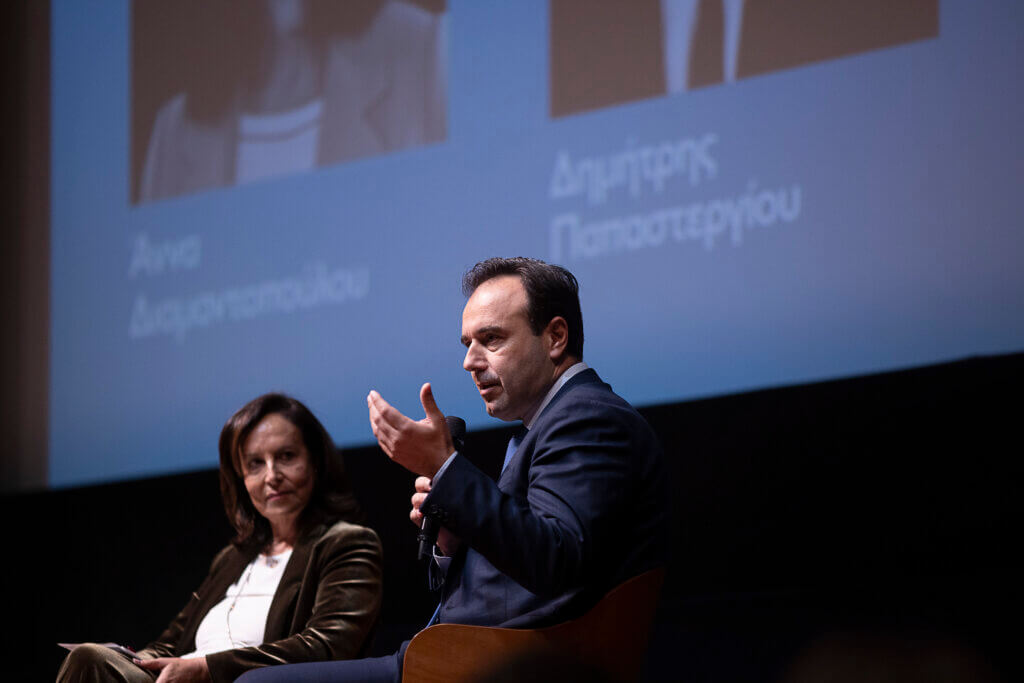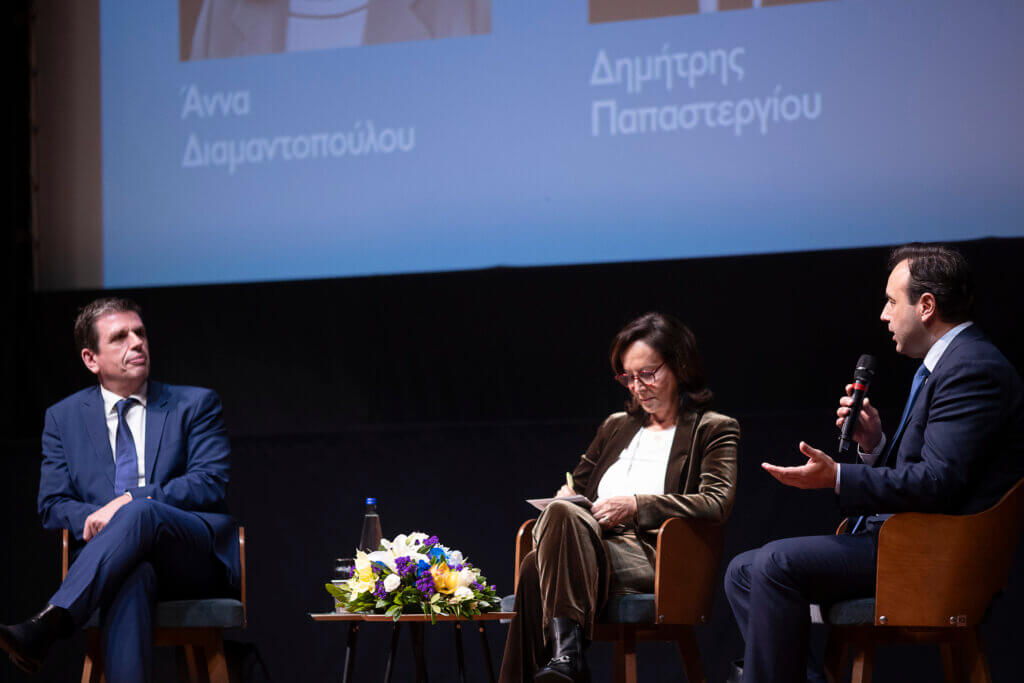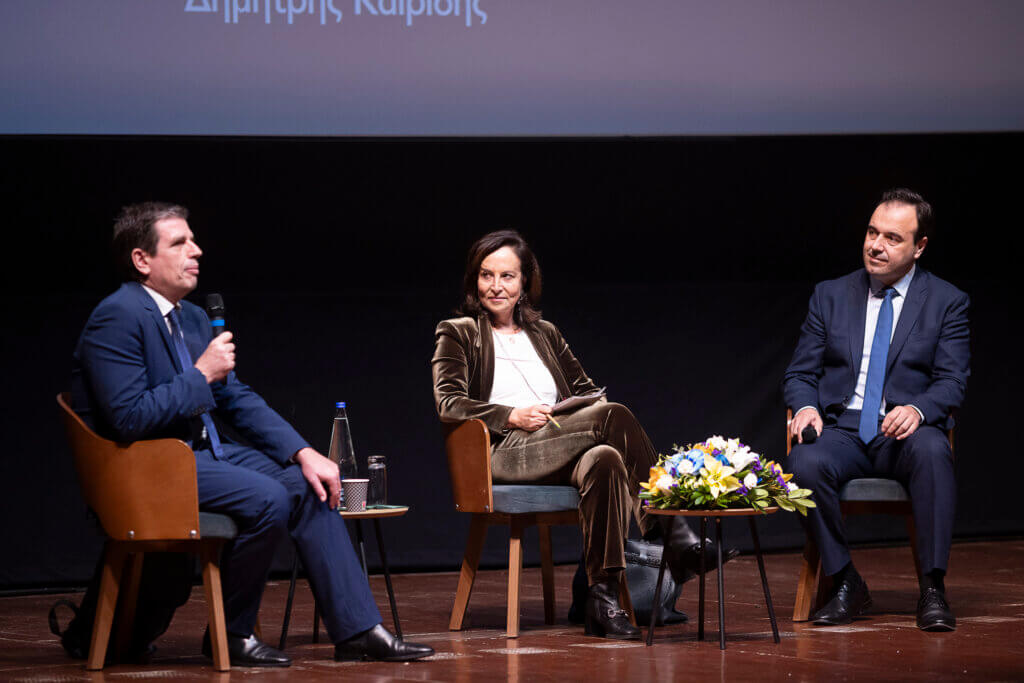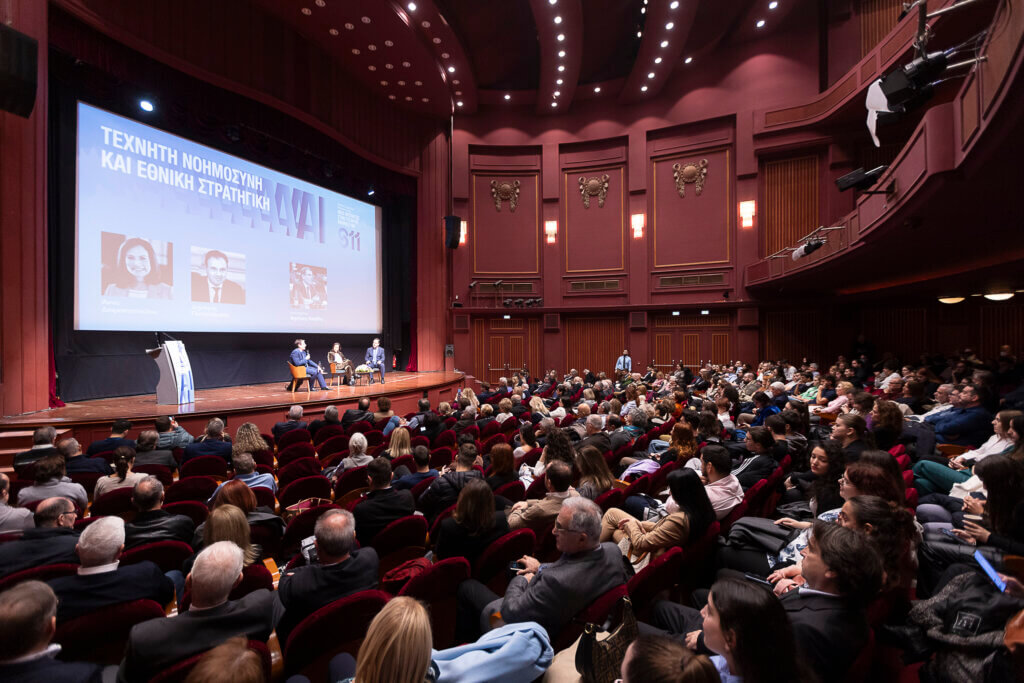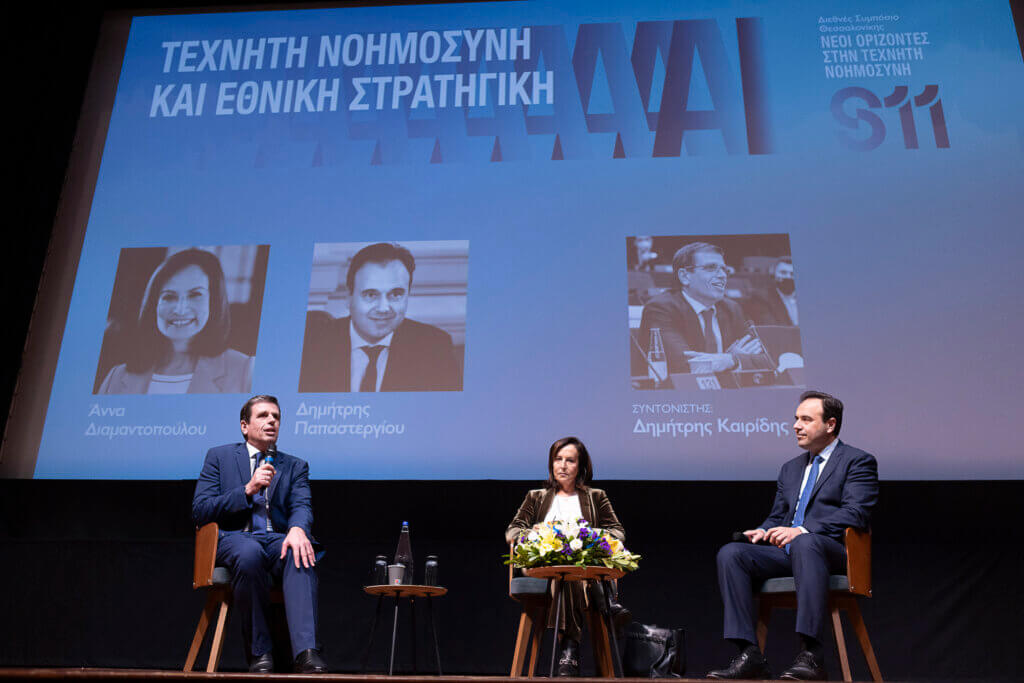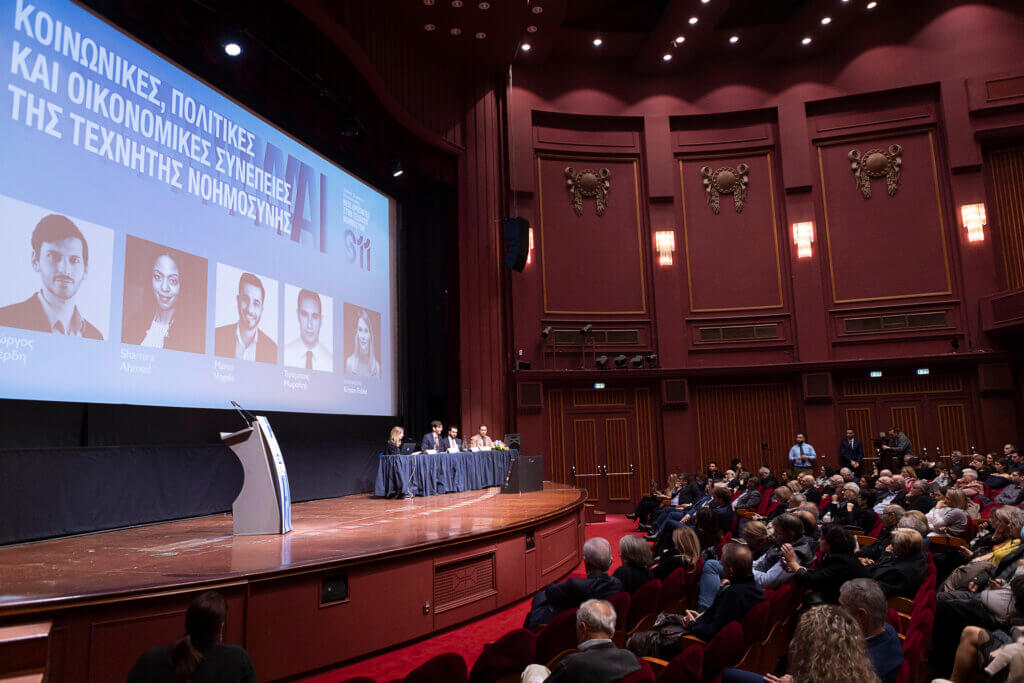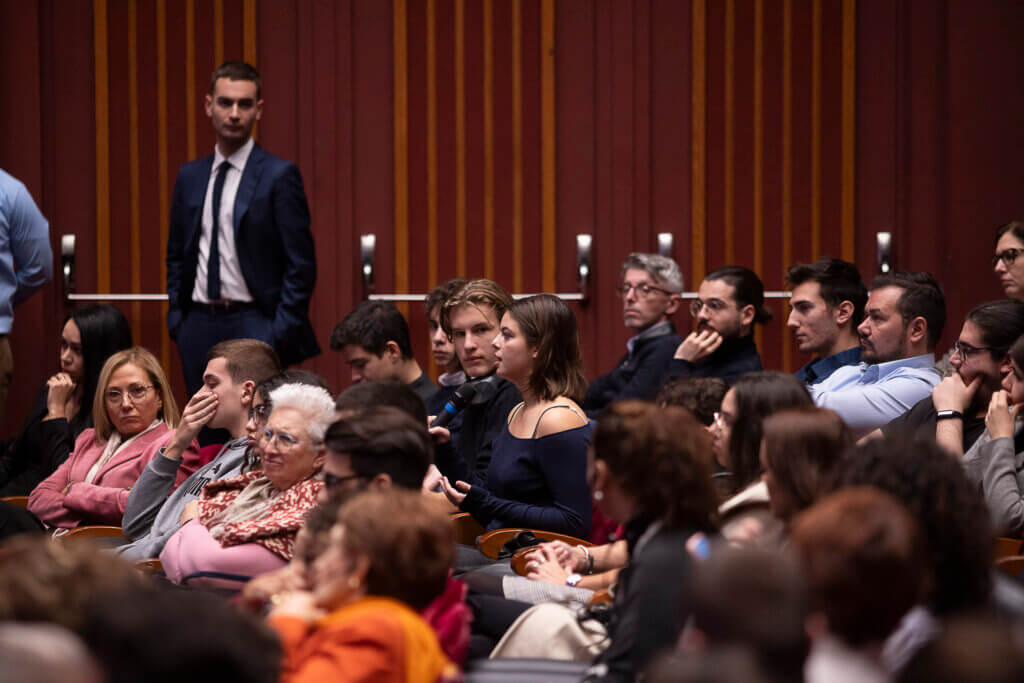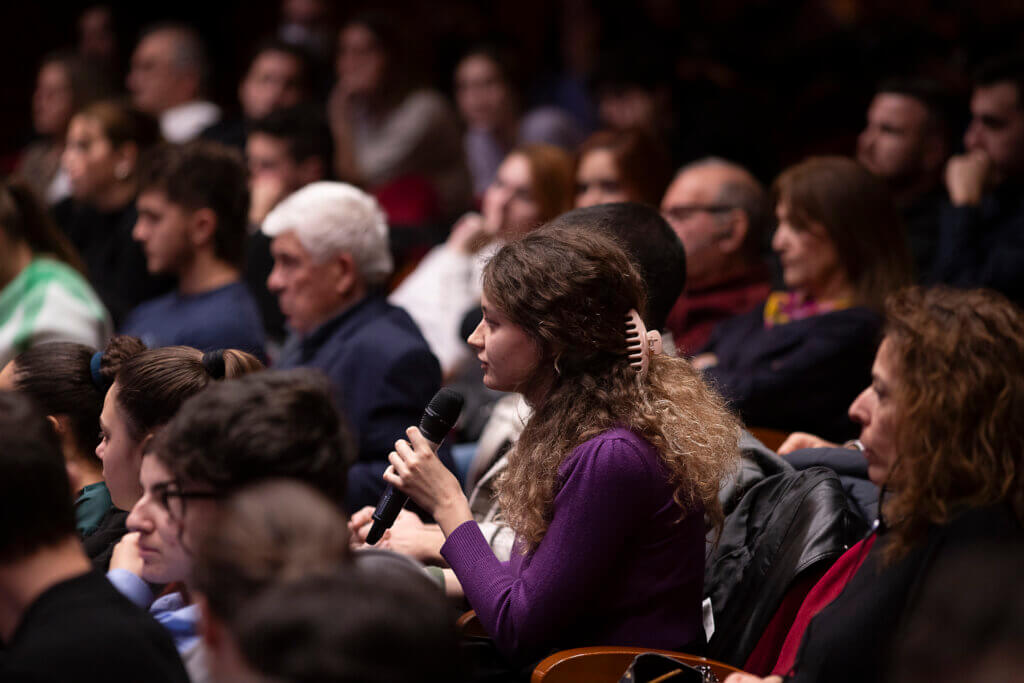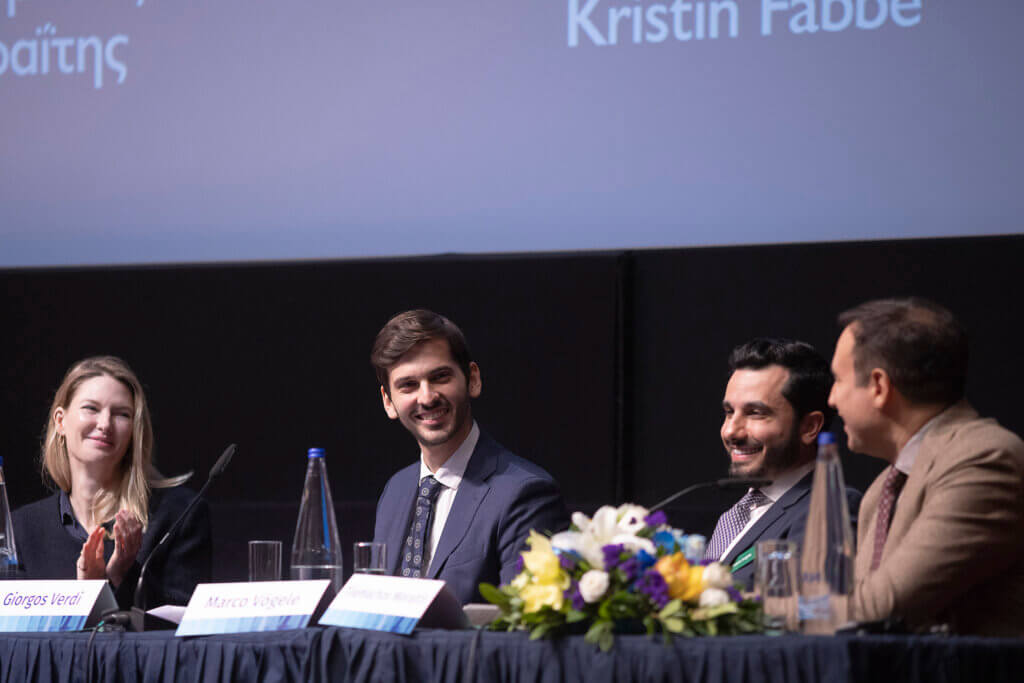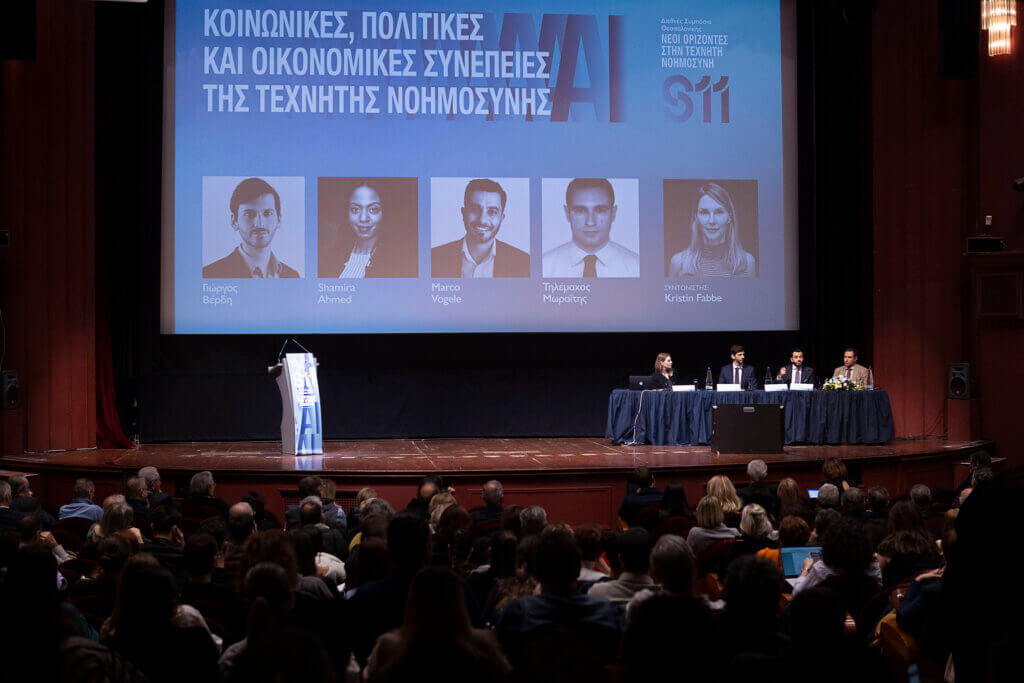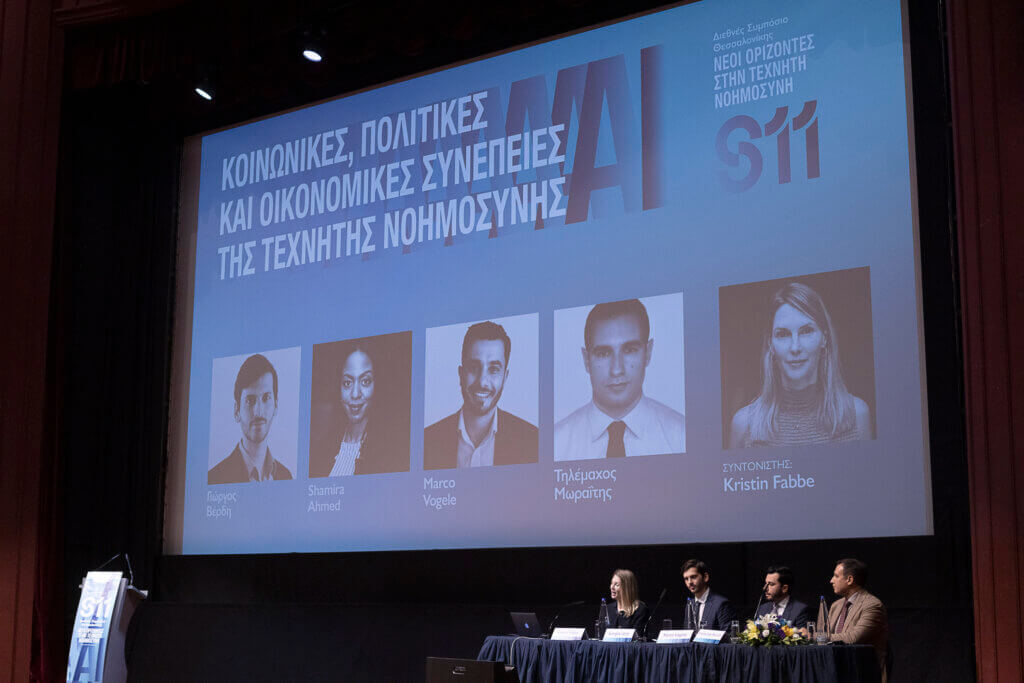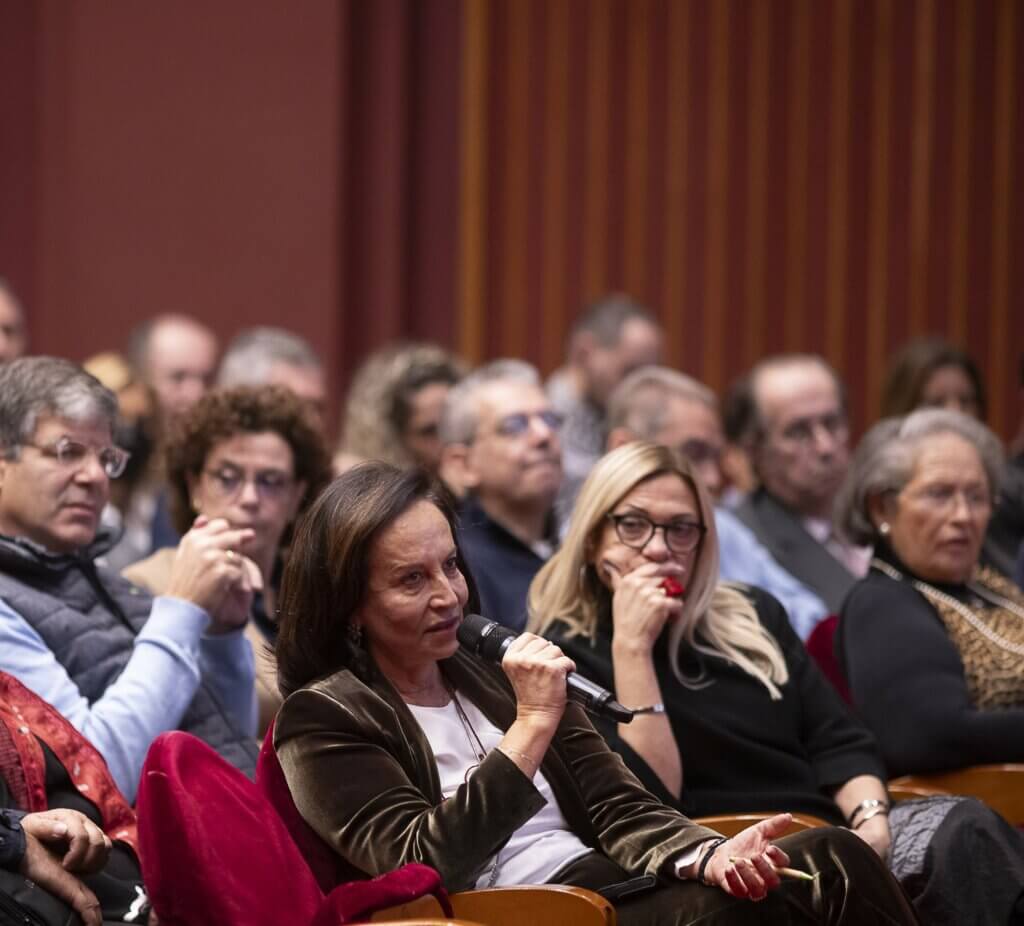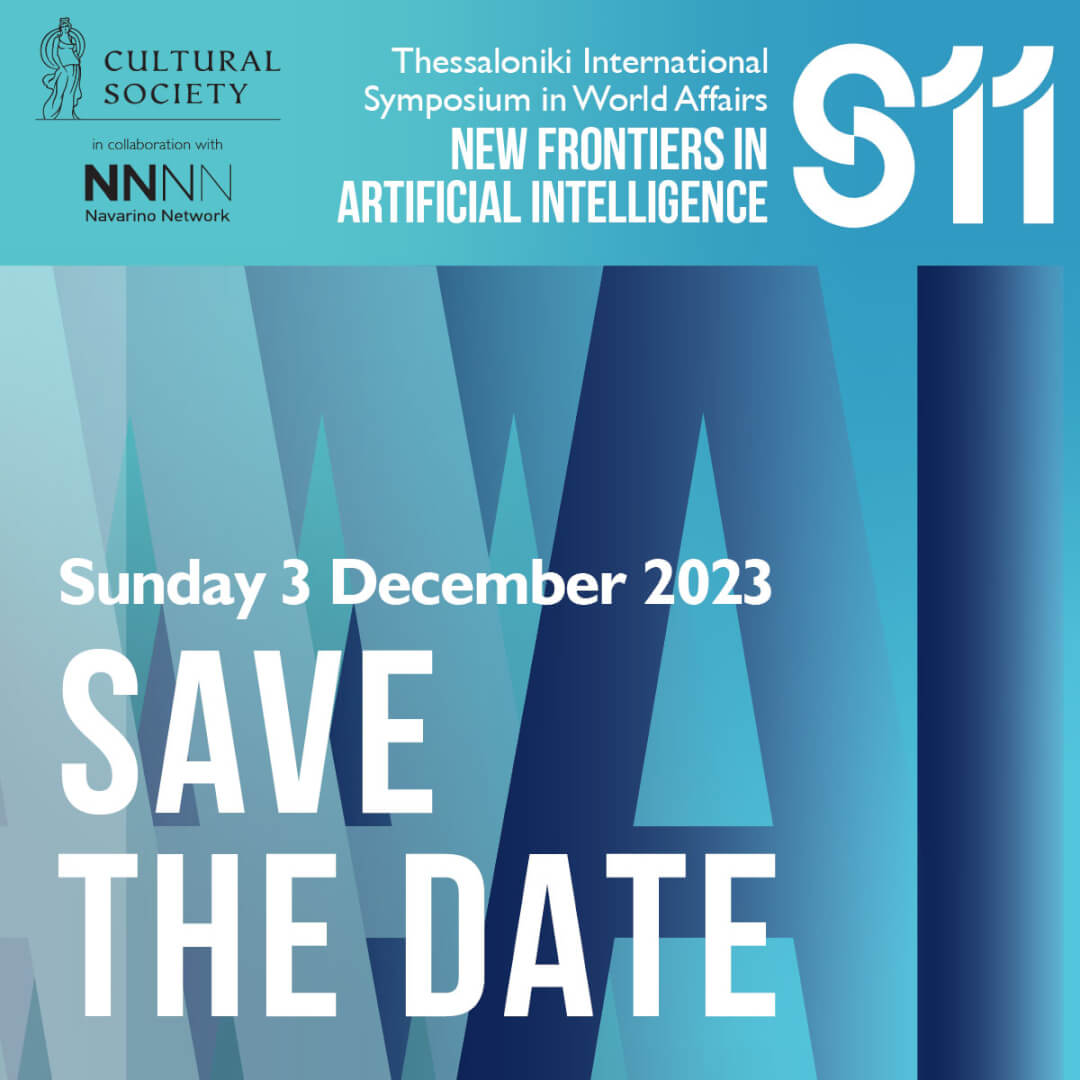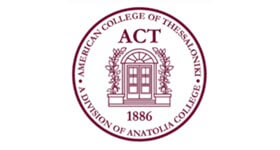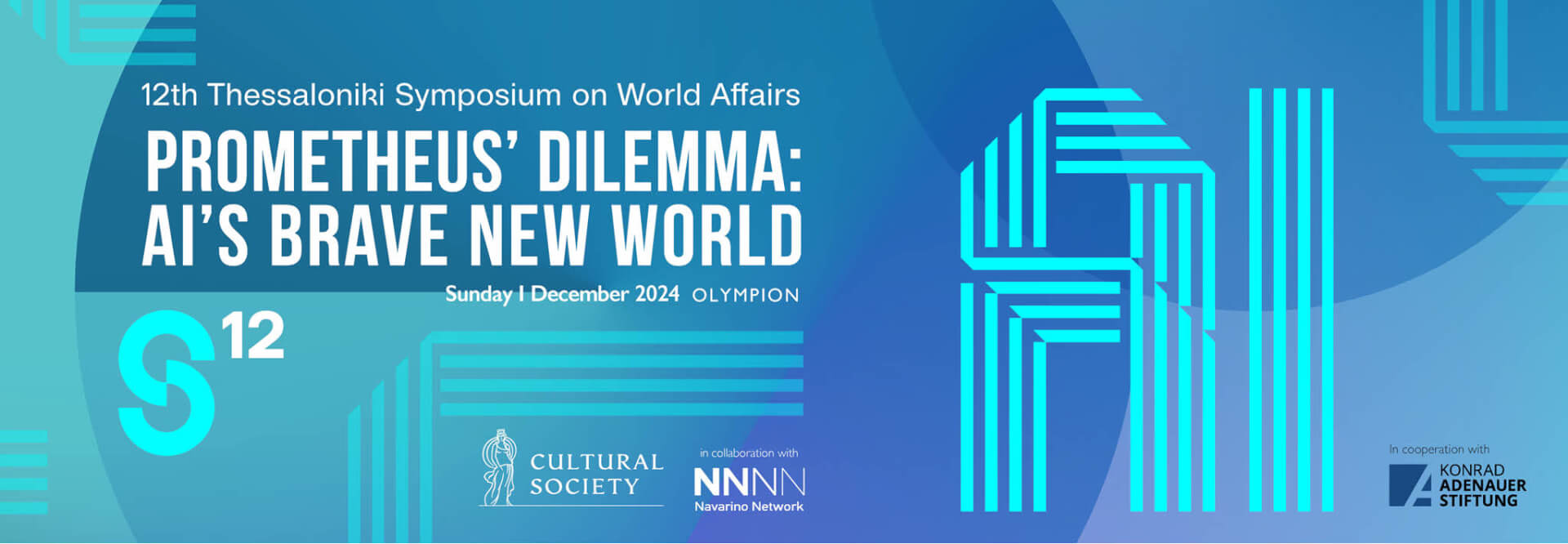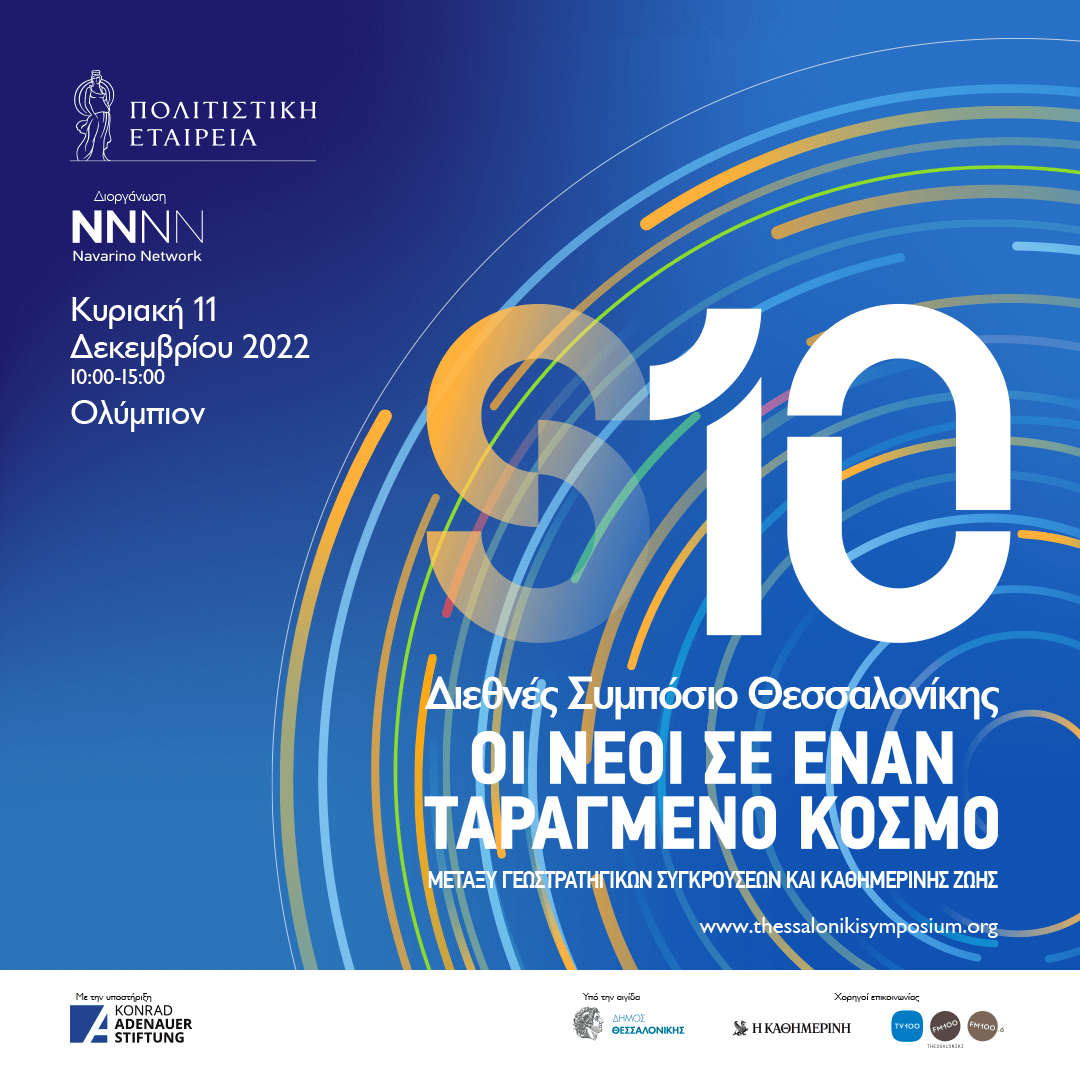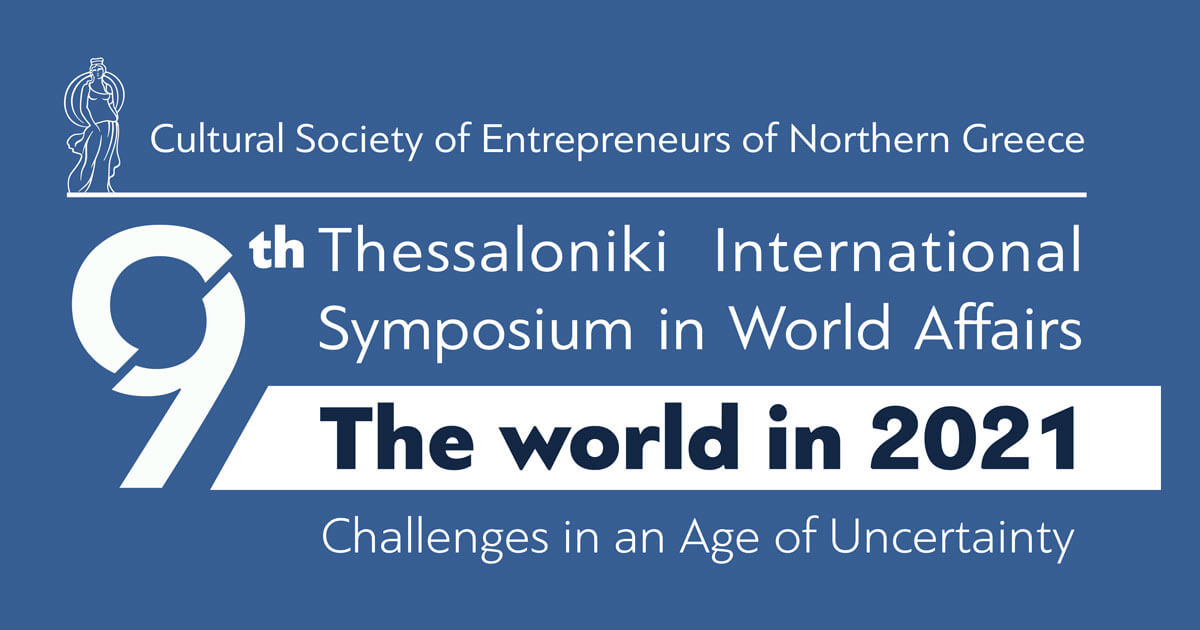11ο Διεθνές Συμπόσιο Θεσσαλονίκης
11th Thessaloniki International Symposium in World Affairs
The Thessaloniki International Symposium in World Affairs was inaugurated in 2012, on the occasion of the festivities commemorating Thessaloniki’s centennial since it’s liberation. The Symposium aims to provide a platform for dialogue on the critical challenges of today’s world.
Το Διεθνές Συμπόσιο της Θεσσαλονίκης θεσπίστηκε και πραγματοποιήθηκε για πρώτη φορά το 2012, με αφορμή τις επετειακές εκδηλώσεις για τα εκατό χρόνια από την απελευθέρωση της Θεσσαλονίκης. Στόχος του Διεθνούς Συμποσίου είναι να παρέχει ένα φόρουμ διαλόγου όπου θα συζητούνται οι κρίσιμες προκλήσεις του σημερινού κόσμου.
11ο Διεθνές Συμπόσιο Θεσσαλονίκης
Δελτίο τύπου
Ολοκληρώθηκε με επιτυχία το 11ο Διεθνές Συμπόσιο Θεσσαλονίκης, το οποίο πραγματοποιήθηκε, για μια ακόμη χρονιά στο Ολύμπιον της πλατείας Αριστοτέλους, την Κυριακή 3 Δεκεμβρίου 2023, με τρία θεματικά πάνελ. Το Συμπόσιο διοργάνωσε η Πολιτιστική Εταιρεία Επιχειρηματιών Βορείου Ελλάδος μαζί με το Δίκτυο Ναυαρίνο, σε συνεργασία με το Ίδρυμα Konrad Adenauer, την υποστήριξη του Αμερικάνικου Κολλεγίου «Ανατόλια», του Δικτύου για τη Μεταρρύθμιση στην Ελλάδα και την Ευρώπη, και το Desmos Policy Institute.
Σε μια κατάμεστη αίθουσα, πλήθος κόσμου, ειδικά νέων φοιτητών, παρακολούθησε τις τοποθετήσεις κορυφαίων επιστημόνων, στελεχών επιχειρήσεων και πολιτικών, σε μια ολιστική προσέγγιση της Τεχνητής Νοημοσύνης και των επιπτώσεων που αυτή έχει στην πολιτική, την οικονομία και την κοινωνία.
Τεχνητή Νοημοσύνη: Τι πρέπει όλοι να γνωρίζουμε;
Στο πρώτο πάνελ, το οποίο συντόνισε ο κ. Marian Wendt, Διευθυντής του παραρτήματος του Konrad Adenauer στην Ελλάδα και την Κύπρο, παρουσιάστηκε συνοπτικά το περιεχόμενο της Τεχνητής Νοημοσύνης, και οι νομικές και οι τεχνολογικές της προεκτάσεις.
Η κ. Μαρίλυ Νίκα, AI Product Lead της Meta, προσέγγισε τη συζήτηση από μια τεχνική σκοπιά, δίνοντας έμφαση στις πρακτικές εφαρμογές της Τεχνητής Νοημοσύνης στην καθημερινή ζωή. Όρισε την Τεχνητή Νοημοσύνη ως «έναν κλάδο της επιστήμης των υπολογιστών που επικεντρώνεται στη δημιουργία μηχανών, ικανών να εκτελούν εργασίες που κανονικά απαιτούν ανθρώπινη παρέμβαση» και εμβάθυνε στη μηχανική μάθηση, χρησιμοποιώντας απτά παραδείγματα, όπως ένα έξυπνο ψυγείο.
Έπειτα, ο κ. Jarzombek, μέλος των Επιτροπών Εκπαίδευσης, Έρευνας και Τεχνολογικής Ανάπτυξης, και Ψηφιακής Διακυβέρνησης της Ομοσπονδιακής Βουλής της Γερμανίας, έθεσε προς συζήτηση την εξέλιξη της κοινωνικής αποδοχής ως προς την προστασία η μη, της ιδιωτικότητας φέρνοντας ως παράδειγμα την ομαλοποίηση της συνεχούς παρακολούθησης των ανθρώπων μέσω smartphones και καμερών. Τόνισε τον κεντρικό ρόλο που μπορεί να διαδραματίσει η Τεχνητή Νοημοσύνη στη δημόσια ασφάλεια, αντλώντας παραδείγματα από το Ισραήλ.
Εκφράζοντας τον προβληματισμό του για την κυριαρχία των Αμερικανικών και Κινεζικών εταιρειών στον χώρο της τεχνολογίας, υπογράμμισε την επιτακτική ανάγκη για τη δημιουργία Ευρωπαϊκών νεοφυών επιχειρήσεων Τεχνητής Νοημοσύνης.
Στη συνέχεια, ο κ. Κουκιάδης, Επίκουρος Καθηγητής στη Νομική Σχολή του Πανεπιστημίου της Λευκωσίας, συμπληρώνοντας τα λεγόμενα των προηγουμένων ομιλητών, υπογράμμισε την αναγκαιότητα ύπαρξης ενός νομικού πλαισίου για τον μετριασμό των ρίσκων στον δυναμικό χώρο της Τεχνητής Νοημοσύνης. Εισήγαγε στη συζήτηση μια προσέγγιση-πυραμίδα με τέσσερα κλιμακωτά επίπεδα ρίσκου στα οποία εντάσσονται οι νέες τεχνολογίες, η οποία υπήρξε αφορμή για περαιτέρω συζήτηση μεταξύ των ομιλητών.
Το σημείο στο οποίο συνέκλιναν οι απόψεις των ομιλητών της πρώτης συζήτησης, ήταν η σύμπραξη ιδιωτικού τομέα και κυβερνήσεων για μια ισορροπημένη θεσμική προσέγγιση που ενθαρρύνει την καινοτομία και δίνει προτεραιότητα στην ασφάλεια και την εμπειρία των χρηστών, τόσο στην Ευρώπη όσο και στον υπόλοιπο κόσμο.
Διαβάστε περισσότερα…
Κοινωνικές, Οικονομικές και Πολιτικές Συνέπειες της Τεχντητής Νοημοσύνης
Στο δεύτερο πάνελ, υπό τον συντονισμό της κ. Kristin Fabbe, Καθηγήτριας Διεθνικής Διακυβέρνησης στο Ευρωπαϊκό Πανεπιστημιακό Ινστιτούτο της Φλωρεντίας, δόθηκε έμφαση στις οικονομικές, πολιτικές και κοινωνικές επιπτώσεις της Τεχνητής Νοημοσύνης με τους ομιλητές να φέρνουν την εμπειρία τους από την την Ευρώπη, τη Μέση Ανατολή, την Αφρική και την Ελλάδα αντίστοιχα.
Ο κ. Γιώργος Βέρδη, εκπροσωπώντας την European Digital SME Alliance, έδωσε μια περιγραφή του δαιδαλώδους κανονιστικού πλαισίου των Βρυξελλών. Κατά τη διάρκεια της τοποθέτησης του, υπογράμμισε ότι «η Ευρωπαϊκή Ένωση εστιάζει στην ηθική, αξιόπιστη και ανθρωποκεντρική ανάπτυξη της Τεχνητής Νοημοσύνης, με στόχο την αύξηση της ενσωμάτωσης της από το σημερινό 8% στον φιλόδοξο στόχο του 75% έως το 2030, στοχεύοντας στην ανάκτηση του ανταγωνιστικού της πλεονεκτήματος στην παγκόσμια αγορά.»
Ο κ. Τηλέμαχος Μωραΐτης από την πλευρά του, εκπροσωπώντας την Microsoft στην Ελλάδα και την ευρύτερη περιοχή των Βαλκανίων, αναγνώρισε τις μοναδικές τεχνολογικές ανάγκες που υφίστανται σε κάθε χώρα της ΝΑ Ευρώπης. Συντάχθηκ με τις απόψεις του κ. Verdi αναφορικά με ένα ισορροπημένο ρυθμιστικό πλαίσιο που διευκολύνει την καινοτομία και δεν επιβαρύνει αδικαιολόγητα τις μικρές και μεσαίες επιχειρήσεις τεχνολογίας (ΜΜΕ), οι οποίες αποτελούν το 89% των αγορών της περιοχής.
Αντλώντας από την εμπειρία του στα Ηνωμένα Αραβικά Εμιράτα, ο κ. Marco Vogele, στέλεχος της IBM, επισήμανε τον αντίκτυπο του μετασχηματισμού που φέρνει η 4η Βιομηχανική Επανάσταση. Τόνισε τη σημασία του ρόλου των Κυβερνήσεων στην ανάπτυξη των δεξιοτήτων του εργατικού δυναμικού, τον εκδημοκρατισμό της πρόσβασης σε ανοικτά δεδομένα, και στην αντιμετώπιση των κοινωνικών προκλήσεων που προκύπτουν από τον αφανισμό θέσεων εργασίας, κατά τη διάρκεια αυτής της τεχνολογικής μετάβασης που λαμβάνει χώρα παγκοσμίως.
Τέλος, η κ. Shamira Ahmed, Policy Fellow στο Ευρωπαϊκό Πανεπιστημιακό Ινστιτούτο της Φλωρεντίας, παρουσίασε τις εξελίξεις στην Αφρικανική ήπειρο, υπογραμμίζοντας την πρόοδο σε χώρες μεσαίου εισοδήματος όπως η Αίγυπτος, η Νιγηρία, η Κένυα, το Μαρόκο, η Νότια Αφρική και η Τυνησία, με ανολοκλήρωτα σχέδια πολιτικής για την Τεχνητή Νοημοσύνη. Επισήμανε την επικρατούσα αισιοδοξία και τη δυνατότητα της τεχνητής νοημοσύνης να αντιμετωπίσει τις διαρθρωτικές ανισότητες στις αφρικανικές κοινωνίες. Συζητώντας για το έργο της στο Data Economy Policy Hub και στο Artificial Intelligence for Circular Exchange, η κ. Ahmed εισήγαγε την έννοια της «πράσινης ψηφιακής δίδυμης μετάβασης». Αυτή η προσέγγιση αξιοποιεί την ψηφιοποίηση που λαμβάνει χώρα στις αναπτυσσόμενες χώρες, δίνοντας έμφαση στις αρχές της κυκλικής οικονομίας και στον συνδυασμό της τεχνολογίας με την αποτελεσματική διακυβέρνηση στην Αφρική.
Τεχνητή Νοημοσύνη και Εθνική Στρατηγική
Στο 3ο Πάνελ, ο Υπουργός Ψηφιακής Διακυβέρνησης Δημήτρης Παπαστεργίου μαζί με την πρώην Ευρωπαία Επίτροπο για την Απασχόληση, τις Κοινωνικές Υποθέσεις και τις Ίσες Ευκαιρίες και Πρόεδρο του Δικτύου για τη Μεταρρύθμιση στην Ελλάδα και την Ευρώπη κα. Άννα Διαμαντοπούλου, συζήτησαν για την θέση της Τεχνητής Νοημοσύνης στο ελληνικό οικοσύστημα, υπό τον συντονισμό του Υπουργού Μετανάστευσης και Ασύλου, Δημήτρη Καιρίδη.
Ο κ. Παπαστεργίου ανακοίνωσε την εισαγωγή του «ψηφιακού βοηθού» στη δημόσια διοίκηση και αναφέρθηκε στον θετικό αντίκτυπο που θα έχει αυτός στην αλληλεπίδραση των πολιτών με το δημόσιο. Ειδική αναφορά έκανε στις νέες υποδομές που δημιουργούνται χάρη στην αξιοποίηση ευρωπαϊκών πόρων και στην ανάγκη «να σταματήσουμε να καταναλώνουμε μόνο ως χώρα και να αξιοποιήσουμε το ανθρώπινο δυναμικό μας για να παραγάγουμε, καθώς το 11% των κορυφαίων προγραμματιστών τεχνητής νοημοσύνης στον κόσμο, έχει αποφοιτήσει από ελληνικά πανεπιστήμια».
Η κ. Διαμαντοπούλου, από την πλευρά της, υποστήριξε ότι η Ελλάδα, σε σχέση με τον Ευρωπαϊκό μέσο όρο, παρά τα άλματα που έκανε τα τελευταία χρόνια εξακολουθεί να βρίσκεται στις τελευταίες θέσεις όσον αφορά τον ψηφιακό μετασχηματισμό στη δημόσια διοίκηση. Διατυπώνοντας την πρόκληση για τη χρήση της Τεχνητής Νοημοσύνης από τις επόμενες γενιές, η πρώην Ευρωπαία Επίτροπος έθεσε ως άμεση εθνική προτεραιότητα την οριζόντια και κάθετη εκπαίδευση των δασκάλων και καθηγητών στα εργαλεία των νέων τεχνολογιών . Τέλος, επισήμανε την ανάγκη της εκ θεμελίων αλλαγής των προγραμμάτων σπουδών, με επίκεντρο τον συνδυασμό της «Τεχνητής Νοημοσύνης με τον Αριστοτέλη» , δηλαδή των ψηφιακών δεξιοτήτων με τις ανθρωπιστικές σπουδές.
Το ετήσιο ραντεβού ενός θεσμού πλέον για την πόλη, δόθηκε για την επόμενη χρονιά και το 12ο Διεθνές Συμπόσιο Θεσσαλονίκης, τον Δεκέμβριο του 2024.
Agenda 2023
New Frontiers in Artificial Intelligence
11th Thessaloniki International Symposium In World Affairs
DOWNLOAD THE AGENDAAgenda 2023, 3 December
10:00 – Greetings
10:10 – An Introduction to AI: What Everyone Needs to Know
- Marily Nika – AI Product Lead, Facebook (META)
- Dimitrios Koukiadis – Assistant Professor, School of Law, Department of Law, University of Nicosia
- Thomas Jarzombek – Member of the Committee on Education, Research and Technology Assessment and the Committee on Digitization of Bundestag
- Moderator: Marian Wendt – Director, Konrad Adenauer Stiftung, Greece and Cyprus
11:15 – Perspectives on the Social, Political and Economic Implications of AI
- Giorgos Verdi – Policy Advisor at the European DIGITAL SME Alliance
- Shamira Ahmed – Policy Leader Fellow, European University Institute, Florence, Italy
- Marco Vogele – IBM, Dubai, Middle East and North Africa Region
- Tilemachos Moraitis – Government Affairs, Regional Manager Director, Microsoft
- Moderator: Kristin Fabbe – Chair of Comparative Politics Analysis, School of Transnational Governance at European University Institute, Florence, Italy
12:30 – Coffee Break
13:00 – Politics, Policy and AI
- Anna Diamantopoulou – President of DIKTIO – Network for Reform in Greece and Europe, Ex. European Commissioner for Employment, Social Affairs and Equal Opportunities
- Dimitris Papastergiou – Minister of Digital Governance of the Hellenic Republic
- Moderator: Dimitris Kairidis – Professor of International Politics, Panteion University, Athens, Minister of Asylum and Migration of the Hellenic Republic
14:00 – End of Confernece
Πρόγραμμα 2023
Νέοι Ορίζοντες στη Τεχνητή Νοημοσύνη
11ο Διεθνές Συμπόσιο Θεσσαλονίκης
ΚΑΤΕΒΑΣΤΕ ΤΟ ΠΡΟΓΡΑΜΜΑΠρόγραμμα 2023, 3 Δεκεμβρίου
10:00 – Χαιρετισμοί
10:10 – Μια εισαγωγή στην Τεχνητή Νοημοσύνη: Τί πρέπει όλοι να γνωρίζουμε;
- Marily Nika – AI Product Lead, Facebook (META)
- Δημήτριος Κουκιάδης – Επίκουρος Καθηγητής, Νομική Σχολή, Τμήμα Νομικής, Πανεπιστήμιο Λευκωσίας
- Thomas Jarzombek- Μέλος της Επιτροπής Εκπαίδευσης, Έρευνας και Τεχνολογικής Ανάπτυξης και της Επιτροπής Ψηφιακής Διακυβέρνησης της Ομοσπονδιακής Βουλής της Γερμανίας
- Συντονιστής: Marian Wendt – Διευθυντής, Ίδρυμα Konrad Adenauer, Παράρτημα Ελλάδος και Κύπρου
Κοινωνικές, Πολιτικές και Οικονομικές επιπτώσεις της Τεχνητής Νοημοσύνης
- Γιώργος Βέρδη – Σύμβουλος Ευρωπαϊκής Πολιτικής στο Ευρωπαϊκό Δίκτυο Μικρομεσαίων Επιχειρήσεων Τεχνολογίας
- Shamira Ahmed – Policy Leader Fellow, Ευρωπαϊκό Πανεπιστημιακό Ινστιτούτο της Φλωρεντίας, Ιταλία
- Marco Vogele – IBM, Ντουμπάι, Υπεύθυνος για τη Μέση Ανατολή και τη Βόρεια Αφρική
- Τηλέμαχος Μωραΐτης – Government Affairs, Regional Manager Director, Microsoft
- Συντονίστρια: Kristin Fabbe – Καθηγήτρια Συγκριτικής Πολιτικής, Τμήμα Διακρατικής Διακυβέρνησης στο Ευρωπαϊκό Πανεπιστημιακό Ινστιτούτο της Φλωρεντίας, Ιταλία
12:30 – Διάλειμμα
13:00 – Τεχνητή Νοημοσύνη και Εθνική Στρατηγική
- Άννα Διαμαντοπούλου – Πρόεδρος του Δικτύου για τη Μεταρρύθμιση στην Ελλάδα και την Ευρώπη, Πρώην Ευρωπαία Επίτροπος για την Απασχόληση, τις Κοινωνικές Υποθέσεις και τις Ίσες Ευκαιρίες
- Δημήτρης Παπαστεργίου – Υπουργός Ψηφιακής Διακυβέρνησης
- Συντονιστής: Δημήτρης Καιρίδης – Καθηγητής Διεθνών Σχέσεων,
- Πάντειο Πανεπιστήμιο, Υπουργός Μετανάστευσης και Ασύλου
14:00 – Τέλος Συνεδρίου
Speakers – Moderators
Ομιλητές – Συντονιστές

Shamira Ahmed
Founder and executive director of the Data Economy Policy Hub
Shamira Ahmed is the founder and executive director of the Data Economy Policy Hub (DepHUB), the first independent think tank founded by an indigenous African woman in South Africa. She is also the founder of Artificial Intelligence for Circularity Exchange (AI4CE), a platform created to promote diverse perspectives for an AI-led just green-digital transition to support the circular economy model (CEM), in sub-Saharan Africa (SSA).
Read more
Shamira is a Policy Leader Fellow at the European University Institute (EUI), Chair of the Digital for Development (D4D) Hub, Civil Society & Academia Advisory Group (CSAAG), and a member of various working groups such as the United Nation’s Internet Governance Forum (UNIGF) Policy Network on Artificial Intelligence (PNAI), Partnership on AI’s (PAI) Demographic Data and Algorithmic Fairness, and United Nations Conference on Trade and Development’s (UNCTAD) Measuring E-commerce and Digital Economy Statistics, to name a few.
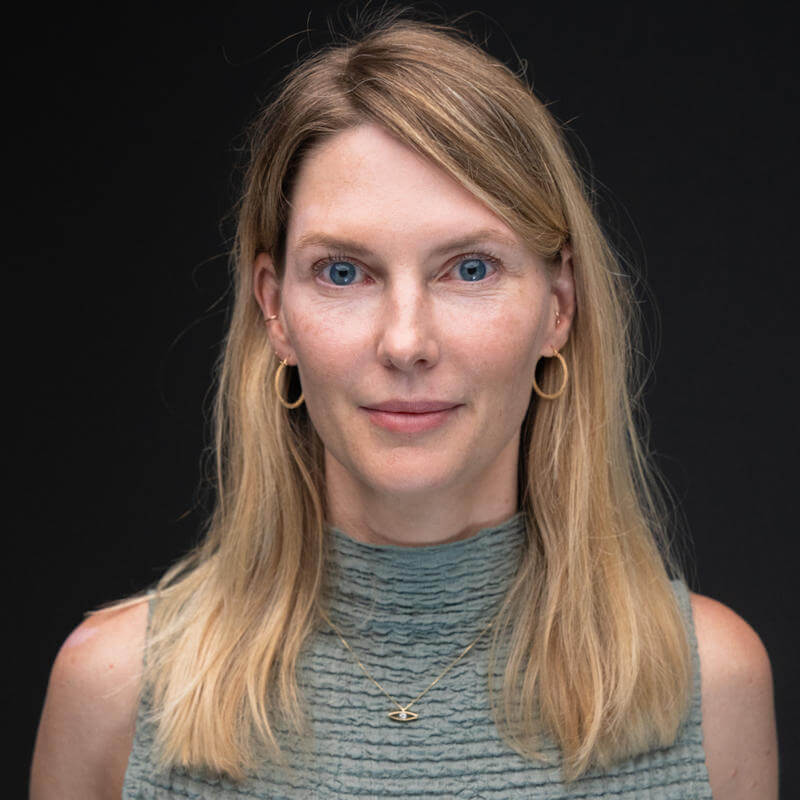
Kristin Fabbe
Professor of Transnational Governance at the EUI School of Transnational Governance
Kristin Fabbe is a Full-time Professor of Transnational Governance at the EUI School of Transnational Governance. Professor Fabbe formerly served as Jakurski Family Associate Professor in the Business, Government, and International Economy Unit at Harvard Business School. At Harvard, she taught “Globalization and Emerging Markets“, and “Business, Government and the International Economy“ in the MBA curriculum.
Read more
She has also taught in several executive education programmes. Prior to Harvard, she was a professor in the Government Department at Claremont McKenna College, where she taught on Middle East Politics. She also works on issues of migration management and the geopolitics of human mobility. She regularly consults for national governments, the private sector and international organizations on these issues.
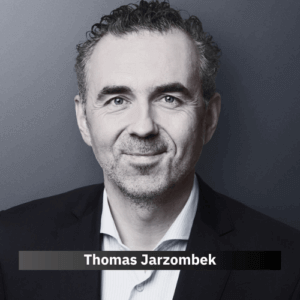
Thomas Jarzombek
Member of the German Parliament, Christian Democratic Union (CDU)
Thomas Jarzombek (50) comes from Düsseldorf in North Rhine-Westphalia. He started an IT consulting company in 1996 while being a student of Economics. He has been politically active for more than 25 years, for example as a member of the City Council of Düsseldorf as well as member of the state parliament of North Rhine-Westphalia. In 2009, 2013, 2017 and 2021 he was elected to the German Bundestag. Since 2014 Thomas Jarzombek is the Chairman of the CDU Düsseldorf.
Read more
2014-2018 he was the Spokesperson of the CDU/CSU-parliamentary group in the Digital Agenda Committee of the Bundestag. He also was member of the Committee on Transport and Digital Infrastructure from 2009 till 2021. From 2018-2021 he was the representative of the Federal Ministry of Economics for the digital economy and start-ups. In addition, he was the federal government’s coordinator for German aerospace policy. The focus of his work as representative for the digital economy and start-ups was the dialogue with the players in the digital industry and with start-ups. His goal was to make the digital market even more accessible for start-ups and to improve the political framework for an international market. During his tenure, the future fund was founded with a volume of 10 billion euros. Today he is spokesman for the CDU/CSU parliamentary group in the Bundestag Committee for Education, Research and Technology Assessment and a member of the Digital Committee.
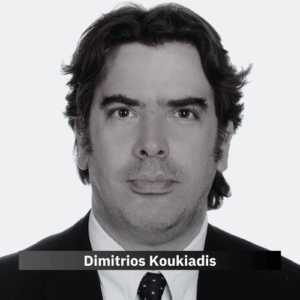
Dr. Dimitrios Koukiadis
Assistant Professor of European/Comparative Law, Personal Data Protection Law, and Internet Law at the University of Nicosia
Dr. Dimitrios Koukiadis is an Assistant Professor of European/Comparative Law, Personal Data Protection Law, and Internet Law at the University of Nicosia, School of Law, and Adjunct Professor of European/Comparative Law at Goethe University Frankfurt/Main, School of Law. He studied at Aristotle University of Thessaloniki, School of Law (LL.B., summa cum laude), at Northwestern University, School of Law/Kellogg School of Business (LL.M., Honorably)…
Read more
at Harvard University, Kennedy School of Government in the fields of public organization and leadership, at the University of Chicago, Internet and Media Platforms, and at the University of Edinburgh, Internet, Artificial intelligence Planning and Philosophy of Sciences. He holds a Doctorate in Laws (LL.D., summa cum laude) from Goethe University Frankfurt/Main, School of Law. He is member of Thessaloniki Bar Association and Frankfurt Bar Association, as well as Certified Mediator/Arbitrator in Germany, USA and Greece specialized in Labor-, Commercial-, Energy-, Medical-, Family mediation and Commercial/Energy Arbitration. He is also member of the Greek Organization of Mediation and Arbitration for labor/employment conflict resolution. His fields of work and academic scholarship include Information Technology Law, European Comparative Constitutional Law, Personal Data Protection Law, Labor Law, and Alternative Dispute Resolution.
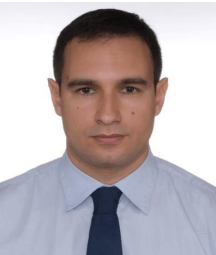
Tilemachos Moraitis
Microsoft’s Government Affairs Manager in Southeast and Central Europe.
Tilemachos Moraitis serves as Microsoft’s Government Affairs Manager in Southeast and Central Europe. He is based in Athens and his role is to monitor and advise on regulatory and public policy issues in relation to digital technology as well as raise awareness on trending technology topics such as AI, cybersecurity, cloud, and skilling. He joined Microsoft in 2018 initially covering Greece and since then his portfolio has expanded to include Cyprus, Malta, the Balkans, and Ukraine.
Read more
Prior to joining Microsoft, Tilemachos held executive roles in Local Government in Greece such as the Regional Government of Ionian Islands and the Municipality of Chalkida, where he was mainly responsible for reforming their organizational structure and for driving digital transformation projects. Tilemachos is originally from Corfu. He is a graduate of the University of Macedonia in Thessalonica and holds a master’s from the School of Advanced International Studies of Johns Hopkins University. His academic expertise lies in the field of international economics and diplomacy.

Marily Nikka
Award winning AI Product Management
Based in Silicon Valley, Dr. Marily Nika is an award-winning AI Product Management leader & one of the world’s top AI educators with 10+ years of experience building AI products at Google & Meta. Marily earned a PhD in Machine Learning at Imperial College London and is also an author, a TED AI speaker, and an Executive Fellow at Harvard Business School. She founded the AI Product Academy and writes about AI.

Giorgos Verdi
Policy Advisor at the European DIGITAL SME Alliance
Giorgos Verdi is a Policy Advisor at the European DIGITAL SME Alliance, leading policy development on the EU’s AI Act for a network of 45.000 enterprises. Giorgos has also been named a Youth Expert by the Council of Europe, where he provided recommendations to the Council’s Youth Strategy on the impact of AI. He has been invited as an expert to events of the OECD, the European People’s Party and the Greek Ministry of Digital.
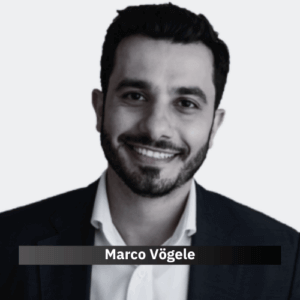
Marco Vogele
IBM Consulting’s Industry Transformation Unit and Enterprise Strategy Leader in the Middle East and North Africa region
Marco is IBM Consulting’s Industry Transformation Unit and Enterprise Strategy Leader in the Middle East and North Africa region. He is a tri-lingual (German, English, and Arabic) Business Technologist that has extensive Consulting, Technology, and Transformation experience.
Read more
He has worked with public and private sector clients across the world. He has advised CEOs, Government Ministers, and other top Executives regarding their innovation agenda, digital strategy, and overall business transformation programs. His key focus area is helping people, communities, companies, and countries to make the most of Emerging Technologies. Marco was awarded the “Excellence and Influence” Award, as one of the Global Consulting Leaders from ‘Consulting Magazine’, was a co-author of a Consulting book. He is the host of “Impact”, a podcast in collaboration with Harvard Business School, where he interviews senior leaders in the Middle East and deep dives into the positive impact they created. He is an Engineer by background (studied at MIT in the US and KIT in Germany) and is a Harvard Business School alumnus. He was selected amongst 40 Senior Executives across the United Arab Emirates (UAE) to graduate from MBZUAI university – UAE’s flagship university that is shaping UAE’s AI vision 2031.
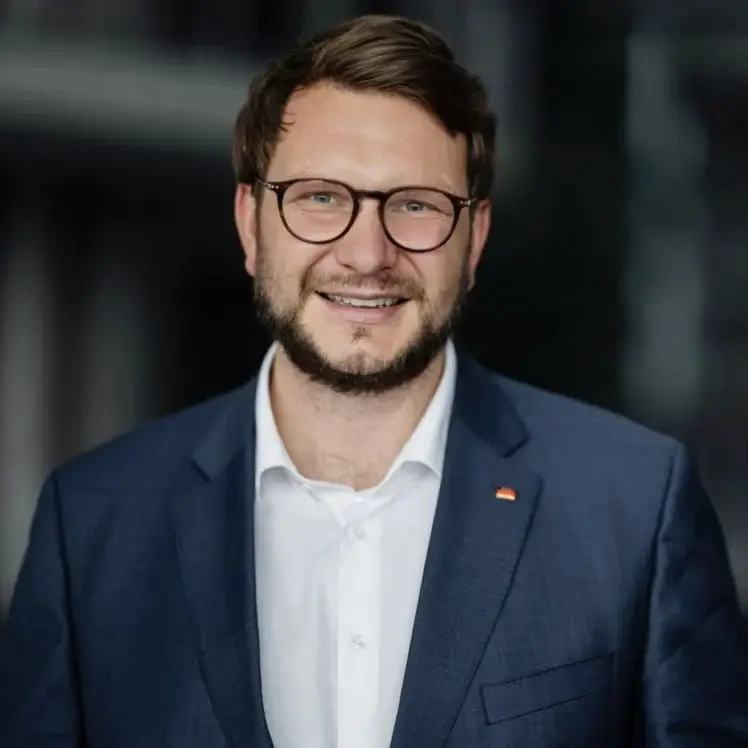
Marian Wendt
Head of the Greece and Cyprus Office, Konrad Adenauer Foundation
Wendt became a member of the Bundestag in the 2013 German federal election, representing North Saxony. He was a member of the Committee on Petitions and the Committee on Internal Affairs. From 2018, he was also a member of the Committee for the Scrutiny of Acoustic Surveillance of the Private Home.
Read more
He served as his parliamentary group’s rapporteur on political extremism and the EU–US Privacy Shield. In addition to his committee assignments, Wendt was part of the German-Italian Parliamentary Friendship Group, the German Parliamentary Friendship Group for Relations with the States of South-Eastern Europe and the Berlin-Taipei Parliamentary Circle of Friends.
In September 2020, Wendt announced that he would not stand in the 2021 federal elections but instead resign from active politics by the end of the parliamentary term.
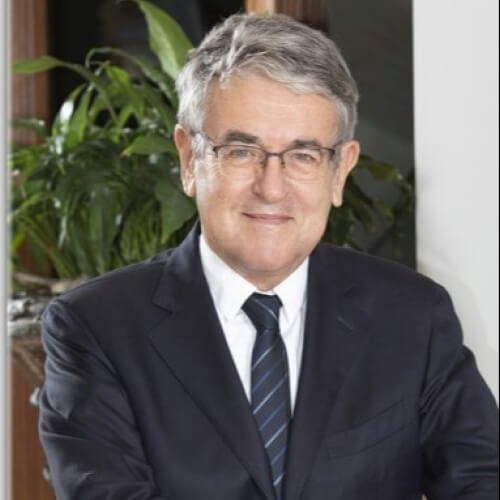
Stavros Andreadis
Chairman, The Cultural Society of Entrepreneurs of Northern Greece
Stavros Andreadis is the Honorary President of the SANI/IKOS Group of companies and Chairman of the Cultural Association of Business of Northern Greece (www.culturalsociety.gr). In 2013 Ernst and Young elected him as the Greek pioneer entrepreneur of the year. Since 2019 Mr. Andreadis has also been chairing the Governance Council of the Theophano Foundation (www.theophano.eu).
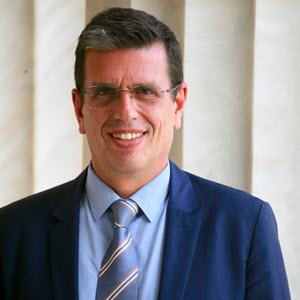
Dimitris Kairidis
Minister of Migration and Asylum; Professor of International Politics, Panteion University.
Dimitris Kairidis was sworn in as Minister of Migration and Asylum of Greece on June 27, 2023. He was first elected to the Hellenic Parliament with the New Democracy party, on July 7, 2019, representing Athens-North. He was reelected on May 21 and June 25, 2023.
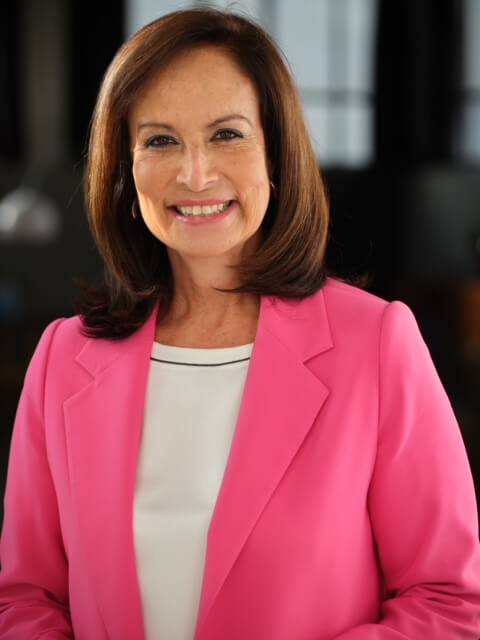
Anna Diamantopoulou
President of DIKTIO – Network for Reform in Greece and Europe
Anna Diamantopoulou is President of DIKTIO – Network for Reform in Greece and Europe, a leading non-partisan, Athens-based think tank. Ms. Diamantopoulou served as the European Commissioner for Employment, Social Affairs and Equal Opportunities, and has held several significant portfolios as a Minister in the Greek government as well.
Read more
She was Minister of Development, Competitiveness and Shipping, and, prior to that, Minister of Education, Research and Technology, and Lifelong learning. Ms. Diamantopoulou is a member other Advisory Board of
Brenthuster Foundation in South Africa. She is member of the Board of Trustees of the Brussels-based think tank Friends of Europe, a Council Member of the European Council on foreign relations (ECFR), and a member of the Scientific Council of the Foundation for European Progressive Studies (FEPS) and member of the Advisory Board of the Delphi Economic forum. Anna also sits on corporate boards, including the Board of Directors of Coca Cola HBC, an FTSE 100 company and the Global Advisory Board of KEKST CNC, a global strategic communications firm, member of Publicis Groupe.
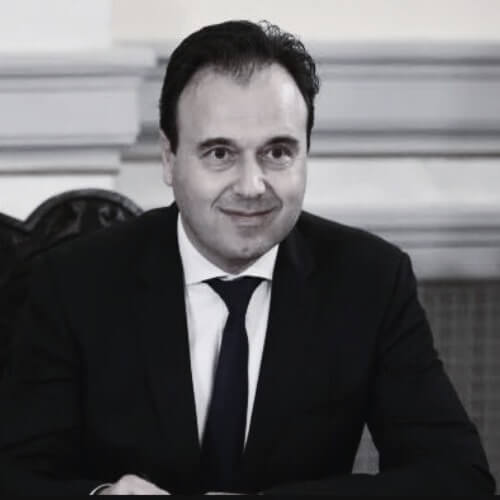
Dimitris Papastergiou
Minister of Digital Governance
Dimitris Papastergiou was born in 1973, studied Electrical Engineering and Computer Engineering at the National Technical University of Athens, and was involved in radio, computer programs, and renewable energy sources. In 2002 and 2006 he was elected municipal councilor, while he was elected Mayor of Trikala in 2014 and 2019, now serving his second term. At the same time, in 2019 he was elected president of the Central Union of Municipalities of Greece (KEDKE).
Gallery
Thessaloniki International Symposium in World Affairs
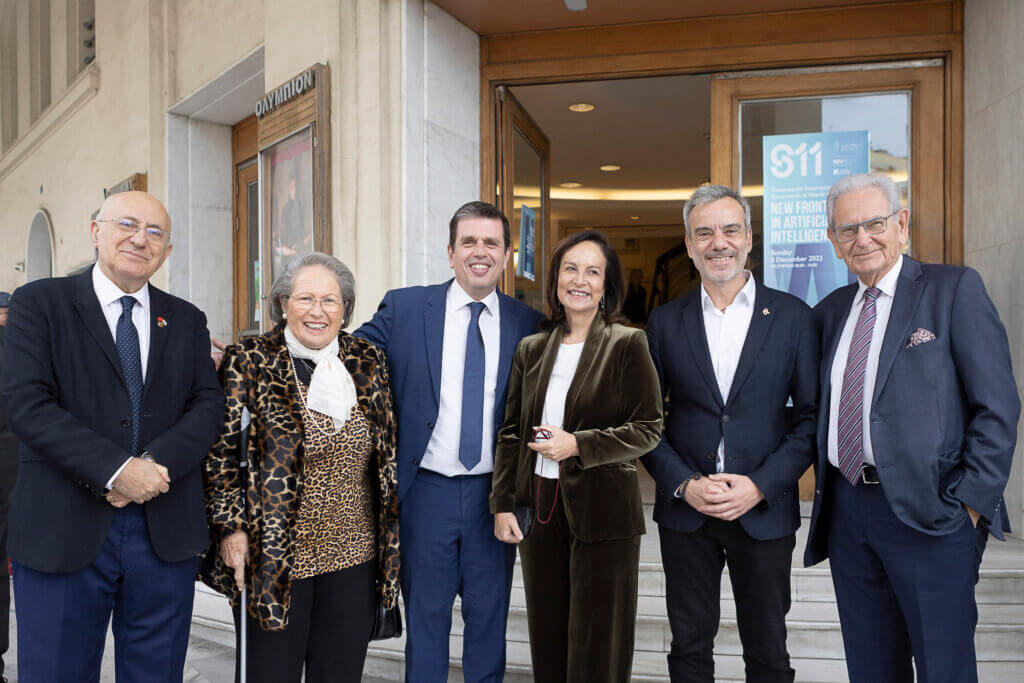
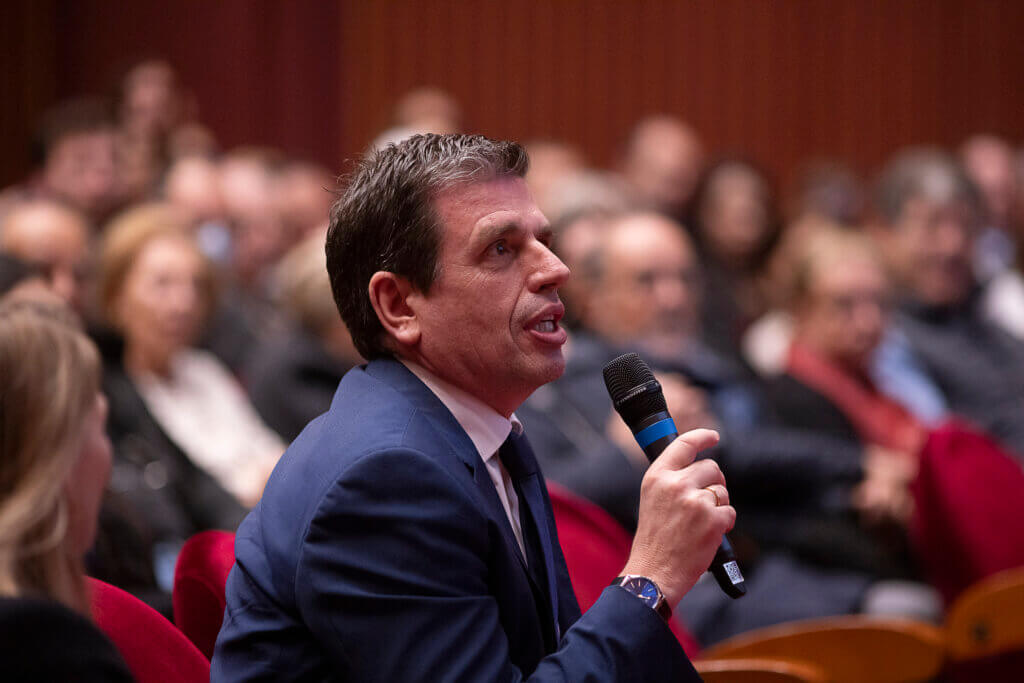


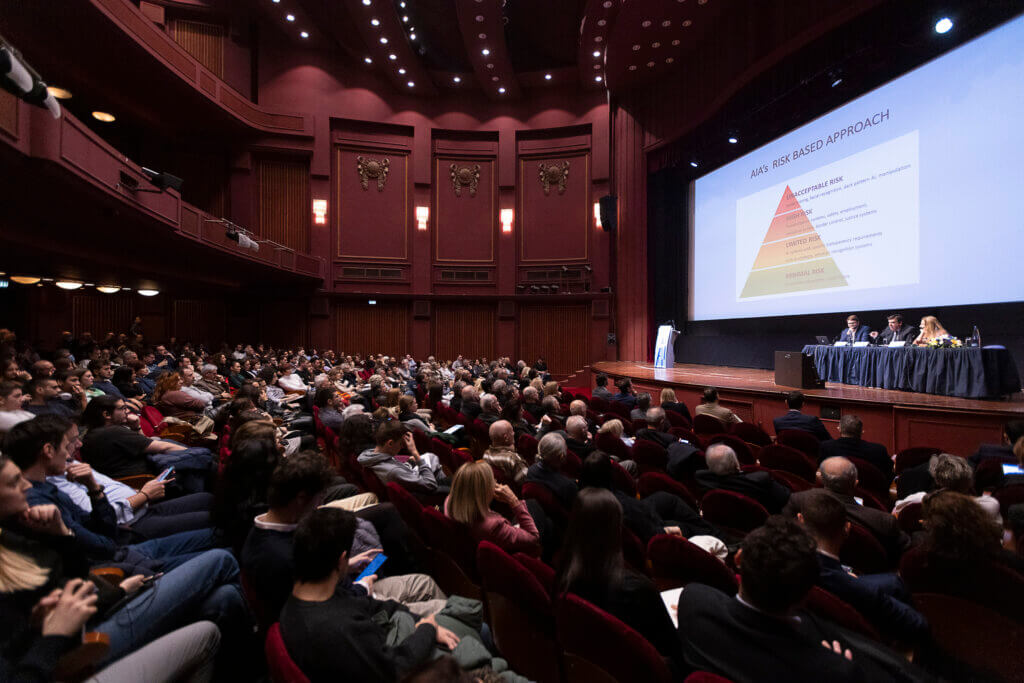
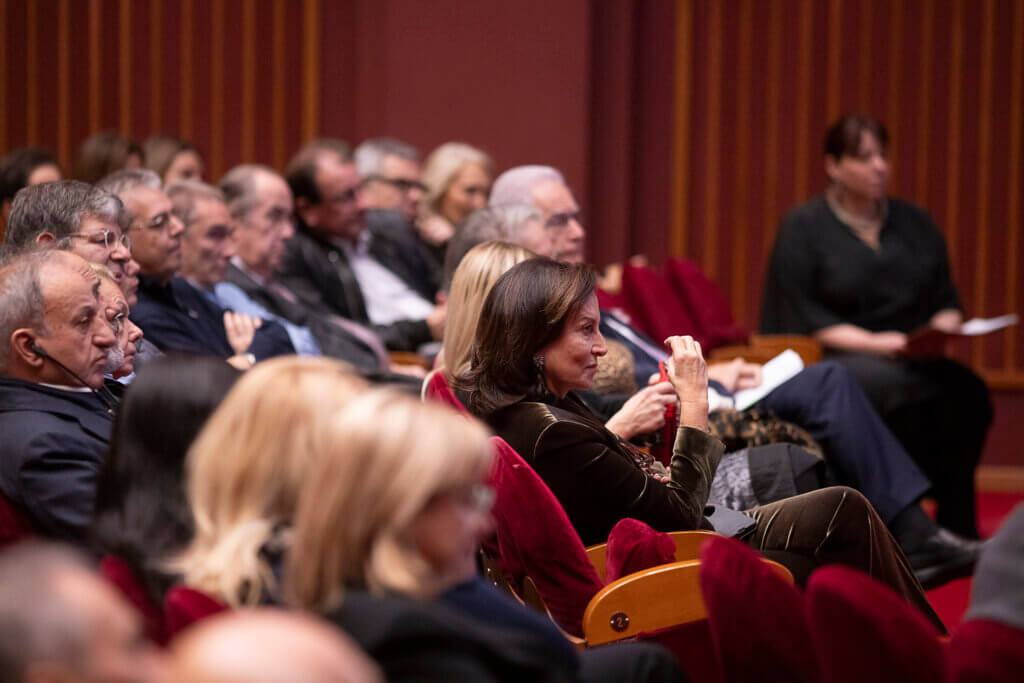
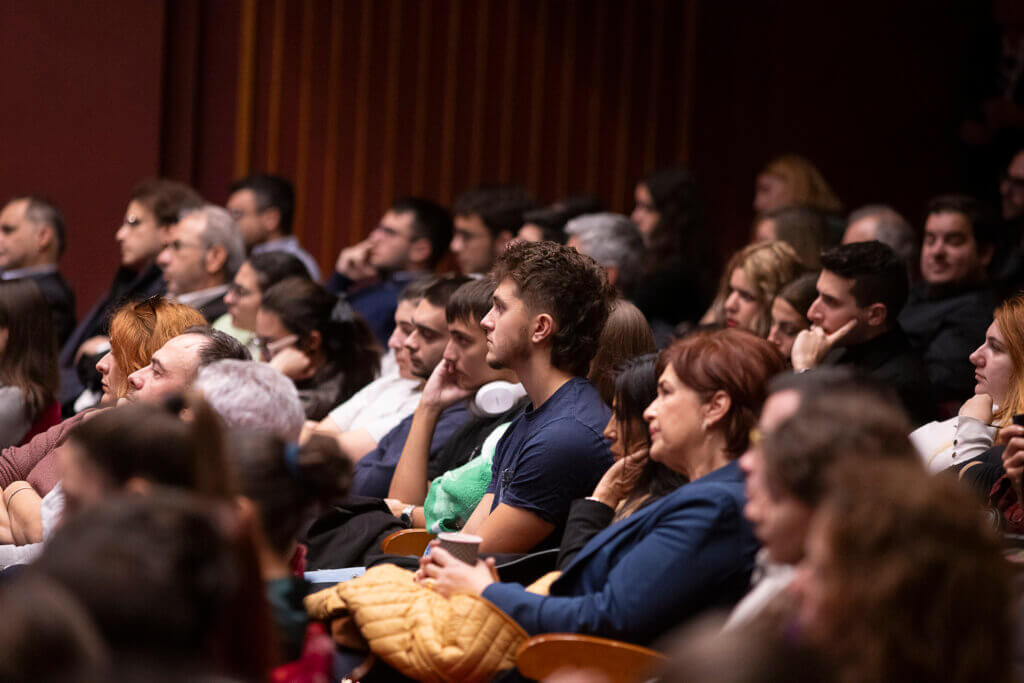
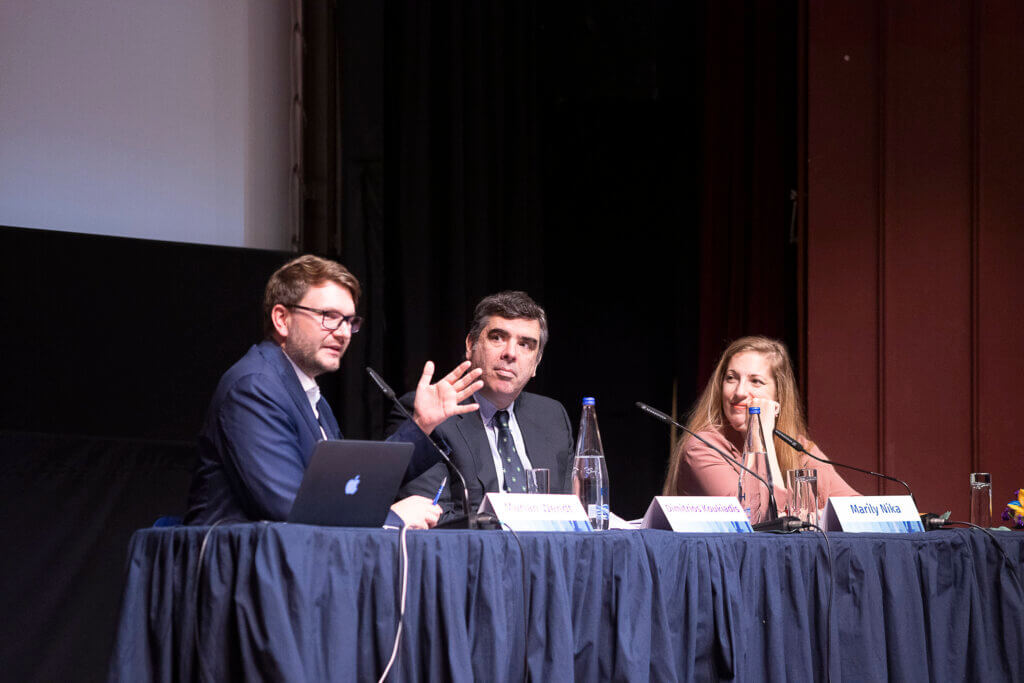
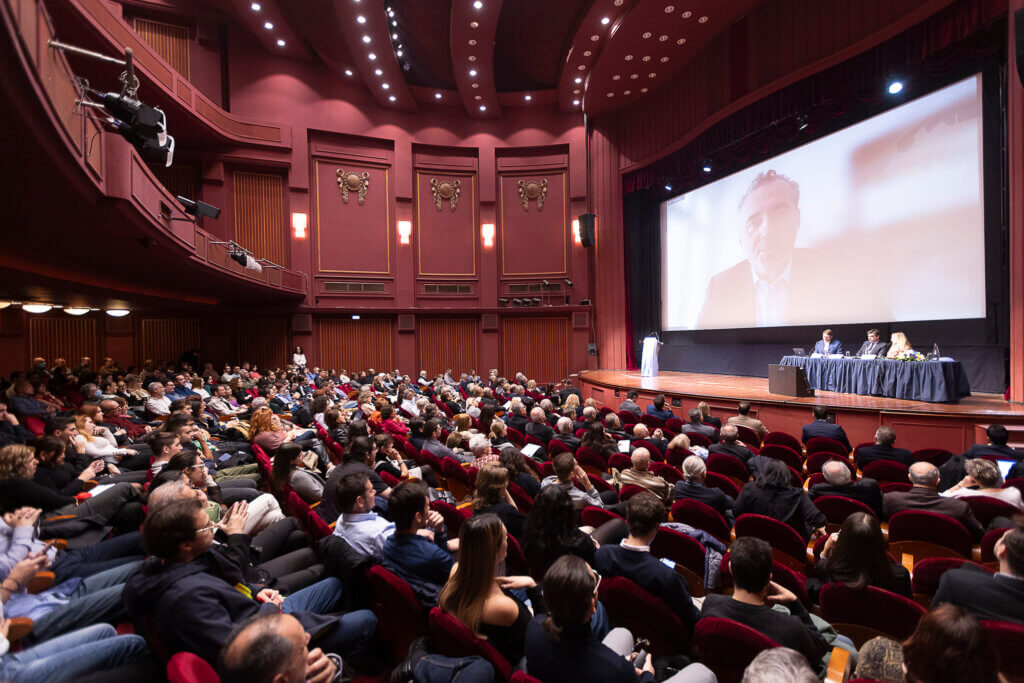
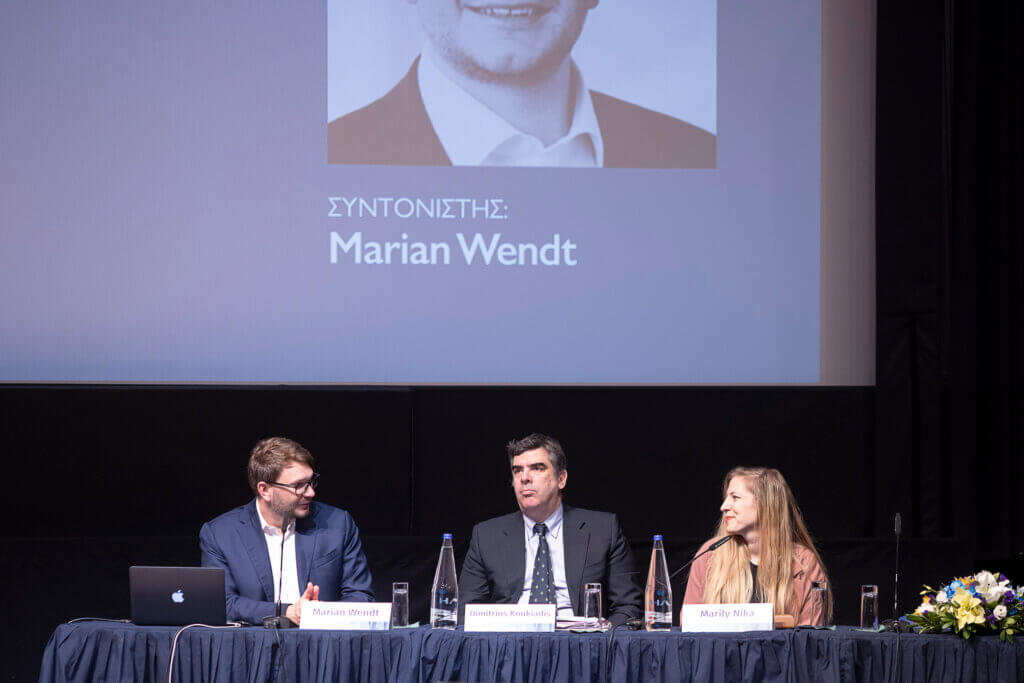
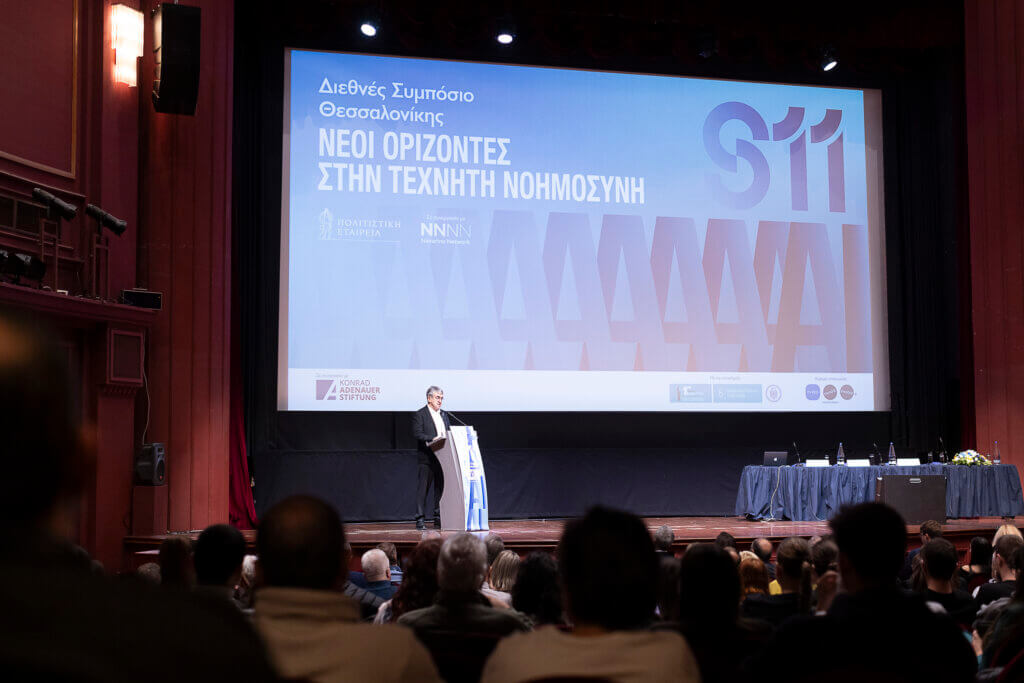
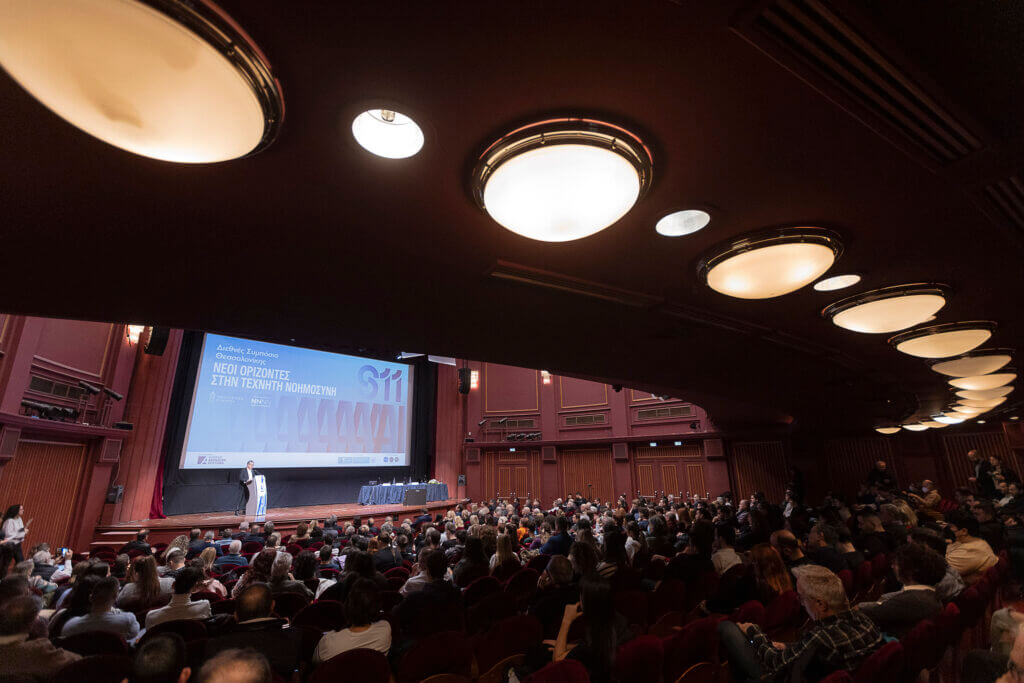
Show more

